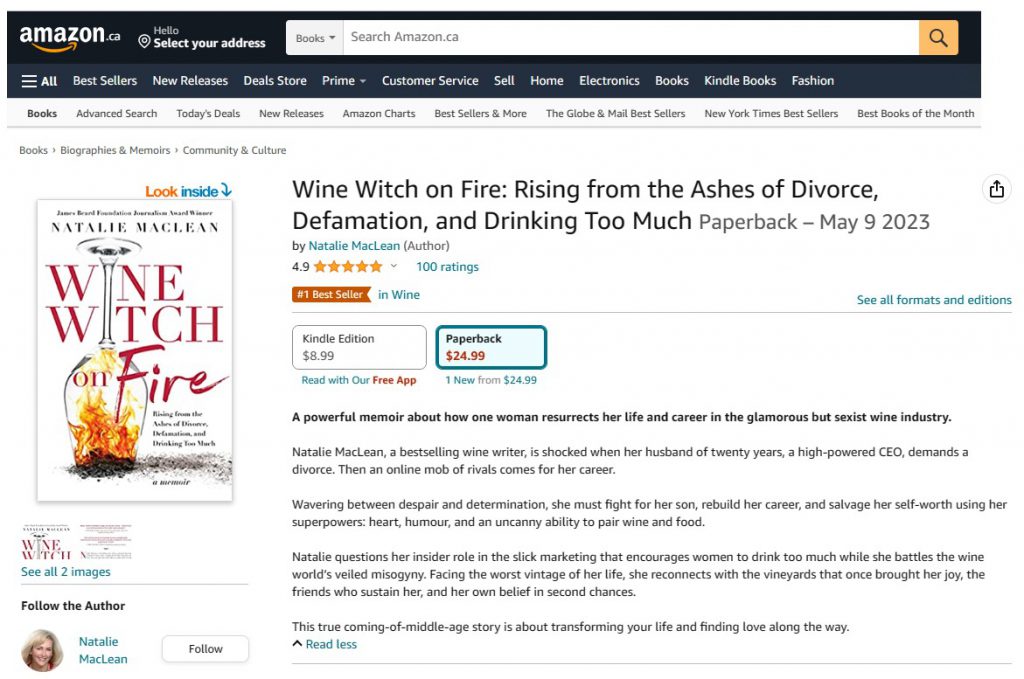In these posts, I’ll share with you a behind-the-scenes look at taking a book baby to the marketplace. Let me know if you have any questions.
They say that three out of five people would like to write a book, so this is for you if you’re one of them, or if you just want to see how it’s done.
I’m also giving updates on this journey on Unreserved Wine Talk, which The New York Times named one of the seven best drinks podcasts.
You can find my previous two books here: Red, White and Drunk All Over: A Wine-Soaked Journey from Grape to Glass and Unquenchable: A Tipsy Search for the World’s Best Bargain Bottles.
Cheers,

P.S. Do you want a more intimate, insider seat beside me on this journey? Please let me know if you want to become a beta reader and get a sneak peak at this manuscript. Email me at natalie AT nataliemaclean DOT com
December 5, 2021
I’m soooo excited to let you know that several publishers are interested in publishing my new memoir! I’ve been bouncing along the ceiling most of this week.
Now I know this deeply personal story will find its way into the world.
I’m chatting with various publishers to discuss their editorial vision for the book.
Then my agent and I will have to make a decision about which publisher to go with. Deep breath. Thank you for being with me along this journey.
I’ll share more details with you when I have them.

December 12, 2021
As I mentioned, several publishers are interested in my new wine memoir. One has offered a 2-book deal … yay!
Even the publishers who said no give fascinating insight into the book’s positioning. I’ll share some “nice no’s” from the U.K.
To publish these days you need to have a large platform; an audience you bring with you who’ll pre-order the book as soon as it’s available, buy it for friends/family and help spread the word.
One U.K. publisher said, “I’ve been completely absorbed by Natalie’s story, but I can’t see us finding a way to make it work for our market.” Another: “It’s a pacy read and the wine interludes are really inventive but I worry we might struggle with this commercially here.”

And a third: “It’s a great and moving read and I really enjoyed it. Natalie has definitely been through a great deal but she tells her story with wit and honesty. It’s a fab read. In the end though I don’t think we would be able to make it quite big enough here in the UK.”
It’s like reading mean tweets, except they’re terribly kind. I almost wish these publishers would write the book back cover blurbs.
They need to know that you have an army of people who’ll support the book before they’ll even look at it … especially with competition for attention from social media, streaming TV and life generally.
December 19, 2021
So many of you emailed me to say you’re interested in the journey from book baby to publishing my new wine memoir, so I’ll give you a little update each week.

I’ll take you behind the scenes in the making of a book, from writing and editing to selling it to a publisher and ultimately, launching it in the marketplace.
I’ll share with you the emotional highs and lows, as there have been many already. Memoir is such a personal piece of writing, it’s as naked as you get on the page.
As of this post, my agent and I are still in negotiations with several publishers who are interested in publishing it. How will this end? Down in flames? Up on a bestseller list? I have no idea. You’ll find out as I do.
Today, I’ll share a few more terribly, awfully kind rejections from U.K. editors, a.k.a. the literary cloaked version of mean tweets. Last week, I talked about how your platform, the audience you bring to the book, is so incredibly important. I just don’t have that in the U.K. compared to the U.S. and Canada. So here we go!
One publisher told my agent, “MacLean is a badass; I like her verve and style. That said, I wasn’t sure of the best way to position her in the market for this aspect of her career and life journey.”
Another said, “Natalie relays her tale of devastation and betrayal with a voice that’s approachable, funny, and warm. There’s a fearlessness about her that’s appealing. I’m just not sure how to break it out in a big enough way—these books can be tough even with a notable platform.”
And a third: “I love the exposé element of Natalie’s book and found her to be an incredibly engaging character, however … ”
So one more odd thing about memoir: as the author, you are considered a character in your own book, sometimes also called the narrator. Memoir shares many techniques with fiction writing from character and plot development to the narrative arc and climax. One humongous difference, of course, is that memoir has to be true and based on your own story.
That said, I don’t mind being described as a fearless badass, even though I’ve never, ever felt that way. Maybe it just comes out in my writing.
December 29, 2021
Great news! The deal is done! My agent and I were in talks right down to the wire the day before Christmas Eve. We had to decide between two terrific publishers. One offered a two-book deal, which is a strong vote of confidence in an author’s career. But I felt overwhelmed committing to another book before this one was even finished.

Both publishers have amazing editors, but the one we went with is absolutely brilliant! His name is Russell Smith and he was a columnist for the Globe & Mail for twenty years, covering arts and culture. He also hosted the popular CBC radio program about language called And Sometimes Y.
He has taught creative writing for the Masters of Fine Arts degree programs at the University of Guelph and the University of Toronto, and published eight books, several of which were nominated for the Giller Prize and the Governor General’s Award, among others.
I want you to get a sense of why I decided to work with him. He has a great vision for this book, plus he really got the premise. It’s almost like dating when someone just gets you and you don’t need to keep explaining yourself.
Russell is the acquisitions editor at Dundurn Press, Canada’s largest and oldest independent publishing house. In 2019, three venture capitalists who made a lot of money in high tech bought the company, so this traditional publisher also has a future forward outlook. And since the high tech industry is part of my story, I think it’s a great match.
So why not go with my previous editor, who is now the head of Doubleday, an imprint of Penguin Random House? Well, here’s what she had to say: Having worked with Natalie, I know how much she brings to the table and I think there’s a significant potential readership for her memoir. I don’t see an obvious editorial match in my group, at least at the moment. So to be practical about it, I don’t think it would make sense for us right now. Between maternity leaves and pending changes it wouldn’t have a natural editorial champion here and it’s only for that reason that it’s not a natural right now for Doubleday’s consideration.
Timing is everything. Publishing may be traditional, but it’s undergoing oceanic changes right now, especially with the pending merger between Penguin Random House and Simon & Schuster.
And here’s the thing: editors can love your book but they can’t make the yes/no decision alone. They must present it to an acquisitions committee that includes members of marketing, sales, publicity, finance, etc and convince them to say yes to a project that’s a minimum $50,000 investment, apart from any advances the author gets. We’ll talk about that in another episode.
Another Canadian publisher said: I’ve taken this one to the team, and we think there’s going to be a big audience for it, but we’re not likely to be the right publisher for it. Usually when we tackle memoir we try to include an overt political or sociological aspect to it. Best of luck to Natalie though; I think this will make quite a splash.
Earlier that week we also had several U.S. editors interested in the book. One really went to bat for this book, but alas. Here’s what she said:
I loved the writing in this memoir, and I was pleased that my team did as well. Natalie has such a witty voice and an incredible talent for connecting with readers. I thoroughly enjoyed the read. After much discussion with my team, however, I’m sorry to say I wasn’t approved to move forward with an offer. Everyone agreed with me on the many credits for this book, but we ultimately struggled to land on a solid positioning that we believe will stand out in the category.
January 3, 2022
During a Zoom call my agent and I had with an editor interested in publishing the book, he asked, “Are you worried about the controversy this book will stir up? The potential backlash for you personally?”
I said, “Well, first off, I’m still a Catholic at heart, so I believe that suffering is good for the soul, it’s purifying.” He laughed.
On a more serious note, I said, “What happened to me is part of my story, it’s made me who I am and I’m no longer afraid to talk about it or of the consequences of doing so. In fact, I had to write this story to make sense of my life; actually to save my life.
“But more importantly, elements of what happened to me are still happening to many women and this story is as much for them as it is for me.”
In my small, but mighty group of beta readers, there are lots of comments on the manuscript like “I can’t believe how similar our stories are.” “How did you get inside my head?” “I wish there was a hug emoji.”
It’s not just women who are making these comments; the men who are reading the book right now resonate with it for their wives, mothers and daughters.
As much as I’d never want to repeat what I went through, I’m glad that some good can come from it if it helps even one reader feel like she’s less alone and can survive what life throws at her.

January 13, 2022
For five years, I couldn’t even look at the notes I took that became the basis of this book. They were too painful, too raw and unprocessed. I had no intention of writing a book, but I had to get the thoughts ricocheting in my head out somehow. So I wrote them down.
It took another five years to make sense of them. It’s only when I could pull back through the lens of time that I had any perspective on my story. As author Glennon Doyle said, “Write from a scar, not an open wound.”
Writing a memoir was like writing about a younger sister, rather than myself. I was a different person a decade ago. We all were. But if I weren’t writing about that experience, I wouldn’t have learned as much as simply going through it.
A few people in my small, but mighty beta reading team have asked me how I can include humour into such a dark story. That’s also the gift of time. If you can see how the absurdity of some things border on hilarity, they fit more holistically into your life. Nothing, and no one, is all bad or all good. Writing about it requires many shades, too.
My fear that this book could be the one that ruins my reputation for good is less important than its message. I’m all in and doubling down.

January 18, 2022
“This memoir is like Bridgerton meets Girlfriends’ Guide to Divorce,” I said when the editor asked me for “comps” or comparable titles. Publishers need to know where your book fits; which books might be shelved next to it in the bookstore. This also gives them a sense of how large the market is for it.
“What about the darker side of wine aspect?” the editor asked.
“Well I guess it’s also like the wine version of Kitchen Confidential, Anthony Bourdain’s expose on the restaurant world, and Drinking: A Love Story, Caroline Knapp’s memoir about alcohol addiction.”
“And the love story and triumph over a devastating attack?”
“I guess it’s a bit of Bridget Jones’s Diary and The Queen’s Gambit … I think we’re going to have to build a bookshelf just to explain this memoir.”
This is the challenge in defining what a book is by what’s already been published. It’s the literary version of the elevator pitch.
In my small, but mighty beta reader group, several people have commented that the book reads like a movie. One was more specific saying it was a mystery thriller first then a rom-com. She was hesitant to say this to me, thinking it was an insult, but I’m thrilled.
These days, books compete for attention with movies, TV, social media and life. So they need to be as fast-paced and as engrossing as a movie or they’ll be discarded after a few chapters.
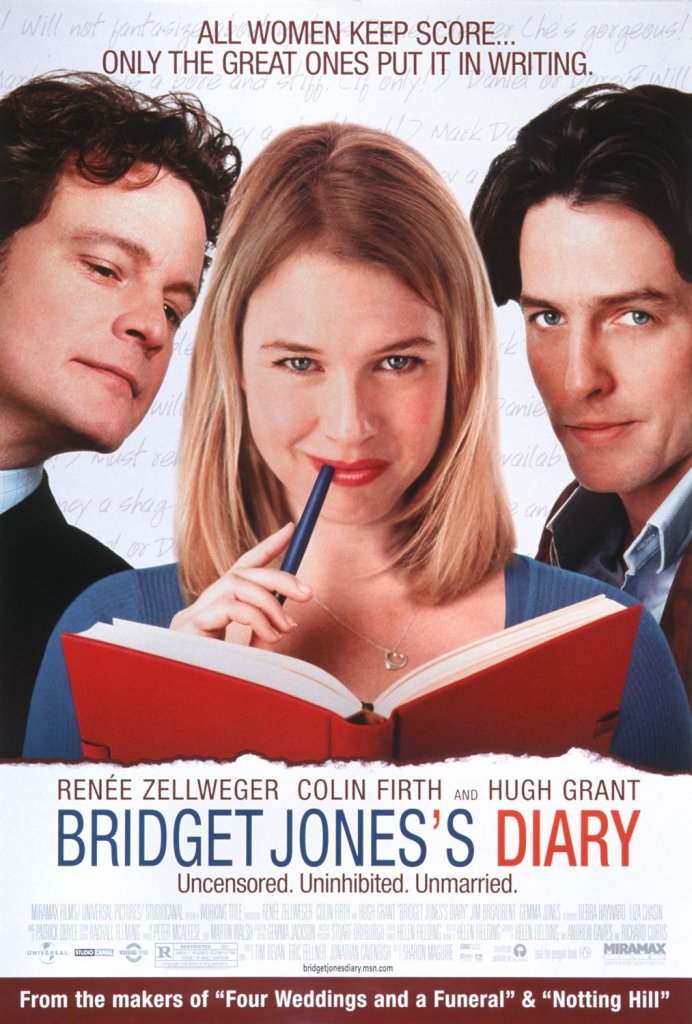
January 22, 2022
“Are you a mean girl?” my mother asked me.
I’d just forwarded another email to her from a beta reader who said she was in tears reading my memoir.
“Yes, I take great pleasure in making people cry,” I replied.
Sarcasm is my first defense against acknowledging real feelings.
It actually touches me deeply every time I get a note from a reader who feels moved by what I’ve written.
Much as I’d like to think they’re crying for me, I know better. They’re crying for the times they’ve felt similar things, whether it’s loneliness, despair, rejection or the gaping hole love leaves when it’s gone.
Not to be a Debbie downer, this isn’t a misery memoir ;)
(Humour is my second defense with feelings.)
I love it just as much, more actually, when beta readers START WRITING IN ALL CAPS and using !!!!!!!!!!!!! because the story turns a corner to something happier.
One reader told me she needed a hug emoji.
I read memoirs to find myself in someone else’s story, to understand myself a bit better, just as my readers do.
Do you? Let me know in the comments below.

January 29, 2022
Can we talk money?
When authors sign a publishing deal, they’re usually paid an advance, a certain amount of cash to write the book. If you’re Michelle Obama or J.K. Rowling, that’s millions of dollars. But for most authors, including me for the memoir I’m writing, we’re lucky if it’s a couple thousand dollars.
This money is not only for the time we’ve already spent writing the book, in my case, a decade, but also for the time we’ll spend editing it before publication and the time we’ll put into marketing it when it’s published. A couple thousand dollars doesn’t begin to cover time or expenses.
The advance is usually paid in three parts: a third when you sign the deal, a third when the editor says the book is ready for publication and a third when it’s actually published.
The hope is that the book sells well and the author earns royalties, or a percentage on each book sold. That’s usually 10% of the cover price. Most books launch as paperbacks, rather than hardcovers, which tend to be reserved for those big names.
The average book sells less than a thousand copies, so that’s an average of $1500 in royalties for a $15 paperback. But before authors collect any royalties, they must first pay the advance money back to the publisher. So a $2000 advance would still be in the hole $500 for sales of a thousand copies.
If the book sells let’s say two thousand copies, then the author would net $1000 dollars. Selling enough copies to pay back your advance means you’ve earned out your advance.
If you don’t sell enough copies to earn out you advance, you don’t need to return the money to the publisher, but almost certainly the publisher won’t work with you again, nor will most publishers in the industry because you’re book sales numbers are available to all publishers through a software program called BookScan.
So publishing is a tough business financially, unless of course you’re one of the big names.
For little fish like me, it’s not about the money; it’s about the message.
What do you do in your life that’s not about the money, but rather it’s about passion?
Let me know in the comments below.

February 6, 2022
I’ve just started watching The Woman in the House Across the Street from the Girl in the Window, a deadpan comedy thriller on Netflix, starring one of my fave actresses Kristen Bell. Kristen’s character Anna loves her wine. In fact, she likes to pour an entire bottle of wine into one big glass right to the rim.
The way she sips on it is hilarious, but it also makes me think about wine and women – how it’s marketed to us and how it’s become a reward or crutch for many of us after a long day of work, housework, kids, meals, lessons and so on. I know men are busy too, but it seems that more wines are sold to us as a justified reward, with brands like Mommy Juice, Mommy’s Time Out and Mad Housewife.
This also makes me question my role, as a wine writer, in promoting that narrative. Am I bringing more pain or pleasure into the world is one of the questions I struggle with in the memoir I’m writing, just as a struggle with my own consumption.
There’s nothing wrong with wine as a treat, and in moderation, but when it becomes something we deserve because, dammit, no one else is saying thank you, I think it can become a problem.
I’ve lost track of the number of emails and direct messages I received from women asking me how much is too much.
I’m vigilant about my consumption, though I’m far from perfect. But I never want to lose the pleasure of wine and have to give it up completely.
? Do you think about these things too?
Let me know in the comments below.

February 18, 2022
“What’s a beta reader?” Sharon asked me after she volunteered to be one.
“Beta readers provide a range of feedback on a book, depending on their level of interest and skill, from a cursory read to those who get into noting typos. It’s up to you,” I said.
“But I don’t have a writing or editing background,” Sharon said.
“No problem,” I replied. “I just want to know what your thoughts are as you read the book, what parts you like and
don’t like. Are there areas where you’re confused or intrigued?
“This gives me an idea of what other readers will experience with the book. It’ll also help me revise the manuscript
to make it better.”
“But doesn’t the editor at your publisher do that?” she asked.
“Yes and no,” I said. “A professional editor sees different things from a reader. They’re also important, but no one
can replace your reader experience.”
“But I’m not a wine expert,” Sharon said, with one last feeble attempt at resistance.
“That’s fine, too,” I said (naturally). “This isn’t a wine book like my last two books, even though it takes place in the
wine world. It’s far more personal, and closer in style to memoirs like Eat Pray Love, Wild and Educated.
“Rather than a trip through a wine region, this is a journey inside to find the courage to reclaim who you are and to let
down your guard to love again. So I’m not looking for wine experts; I want someone who has a passion for stories
that connect with their own.
“This is more than a book to me; it’s a message I want to share with as many people who need or want to hear it. I’m
on a mission with this book, unlike my previous two. “Your comments will strengthen that message, Sharon.”
“Sign me up,” Sharon said, smiling as she realized resistance was futile.

February 24, 2022
“I’m so glad you spoke up about this,” Tara, another member of a Facebook group posted in response to mine about getting honest with how much wine we drink. I’ve renamed her and I’ll paraphrase her comments.
She added: “I think about my relationship with wine a lot. Sometimes, I drink to fit into social situations when I didn’t even feel like drinking. Other times, I pretend to be excited when my friends suggest we go out for drinks. Those choices affect me long after I’ve put the drink down.
I think your new memoir will be a great conversation starter between friends who are too shy or embarrassed to bring up these issues on their own. We can talk about your book first, but then I hope we’ll get real about our own feelings and behaviour. Thanks for letting me be a beta reader.
Part of the book club guide that comes with the memoir has some provocative questions about this issue and others like these:
Why is it that we don’t often share what’s really going on in our lives? Have we all bought into the Instagram filter of showing only our perfect lives? Does it take a crisis before we really start to share with each other?
I hope they’ll kickstart those conversations even for those who aren’t part of book or wine clubs. I think it’s a discussion worth having with ourselves too.
What do you think?

March 4, 2022
Memoir is the bastard of literature, according to Mary Karr, the celebrated author of the memoirs, The Liar’s Club, Lit and others.
So why are we drawn to it?
It’s not the same as an autobiography, although the two are often confused.
Autobiography usually starts at the beginning of someone’s life, usually someone famous, and continues to the current day, recounting major events and lessons learned in a life.
Memoir is just one slice of a person’s life, perhaps just one year, like my memoir.
There’s usually an inciting incident that sets the author off on a series of adventures or mishaps.
The story is about overcoming obstacles, real-life villains, self doubt and high stakes like potentially losing your career, livelihood, marriage and mind.
Yep, I check all those boxes.
Memoir is not usually about someone famous.
Instead, the author is a stand-in for readers who go through a relatable, emotional journey as though they are the story’s hero.
Readers get a voyeuristic look into the author’s private life and thoughts, and can ask themselves the same questions the author is pondering about how to handle life in tough circumstances.
The author is more vulnerable and transparent than most readers would ever be comfortable with, so there’s a satisfying feeling for them to think about how they’d react in similar situations or recall past experiences in their own lives and reflect.
It also gives readers an excuse to talk about these issues with friends and family without having to make it personal or too revealing.
I call my memoir my book baby, because it’s still a work in progress and I feel overprotective of it, but it’s no bastard, I can assure you.
This book has its roots deep in its parents, not just me but also all those who are helping raise it right now, especially my beloved beta readers.
It takes a village to raise a child, it takes an army to publish a book.

March 10, 2022
“Why so much Hobbit hate?” one of the beta readers of my memoir asked me recently.
Don’t get me wrong, I loved the Lord of the Rings books and movies, and I quote some of author J.R.R. Tolkien’s insightful phrases. However, I do write about getting back into the dating game following my divorce after twenty years of marriage.
In the book, I meet with the owner of a match-making company and I say to her:
“I don’t want to date a man I can easily throw over my shoulder. And no more hairy Hobbits.”
“No more what?” she asked.
“Short men with lots of back hair.”
Hobbits are heroes in Tolkien’s stories, but not as a real-life dinner and dancing companion when you’re almost 5’10” and his head nuzzles into your tummy … or slightly higher.
“Oh, that’ll be a challenge.” She sighed. “At least come down to 5 foot 8.”
“What? A guy who’s shorter than I am? Can’t do it, though I’ll compromise on the back hair. He can shave that if he truly loves me.”
She shook her head and rolled her eyes.
So my beta reader said, “That Hobbit comment is a real gut punch for shorter guys.”
I said, “It’s really more of a swat across the top of your forehead, but let’s not nit-pick.”
I actually don’t have anything against hobbits or shorter men. It was awkward and scary dating again, especially after being “off the market” for two decades.
And at that point, I really didn’t know who I was, much less what I really wanted or needed in a companion. There’s more in the memoir about the highs and lows of these romantic escapades.

March 13, 2022
“Your memoir isn’t literary,” the editor said.
“What?” I asked.
I felt dumb.
I was always with the smart kids in high school, graduated with honours from the MBA program at Western, won literary writing awards.
What the ‘eff happened since then?
“Your memoir is commercial,” she said.
Now I felt cheap and salesy, like a word hustler.
“What’s the difference?” I asked.
“Well, there is some crossover between the categories, but literary books focus on the internal lives of characters, beautifully crafted sentences and echoes of previous literary works, however obscure.
“Commercial books are plot-driven, entertaining and fast-paced. You read them for a gripping story, like mysteries and thrillers, not for the artistry of the writing.”
This made me feel worse.
“Even though my memoir is plot-driven (what happens during one hellish rollercoaster of a year), can’t my sentences be pretty, too?” I bleeted.
She smiled, “Sure Natalie, they’re not mutually exclusive. And here’s the upside: commercial books are often available in all the major bookstores, plus other stores like Wal-Mart, Costco and Target, maybe even Pottery Barn. Literary books don’t often get as widespread distribution.”
That wasn’t exactly comforting.
But then I thought about my mission with this memoir: to get its message out to as many people who need or want to hear it.
Wider distribution will help that.
I’m going to swallow my pride and prejudice for the greater good I believe this memoir can do.
However, I’m not giving up on pretty sentences ;)
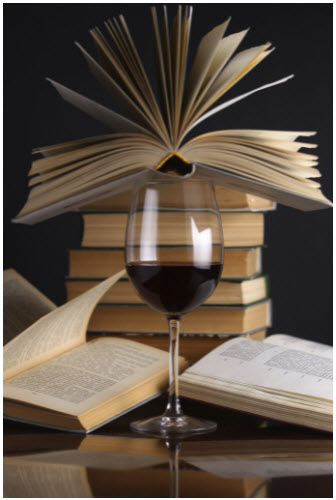
March 20, 2022
THE BOOK DEAL IS SIGNED!
I didn’t want to say anything until the announcement was printed in Publisher’s Marketplace, the official industry publication.
Even then, I waited to check I wasn’t in some sort of weird dream sequence like the confusing opener of, well, some books ;)
“TV personality, host of the podcast UNRESERVED WINE TALK, four-time James Beard award-winning writer and author of Red, White and Drunk All Over, Natalie MacLean’s WINE WITCH ON FIRE, about one woman’s quest to transform her life that’s been shattered with the sudden crumbling of her twenty-year marriage and a vicious professional attack forcing her to choose between despair and overdrinking or digging deeper to find the magic inside herself to reclaim her son, sanity, reputation, new love, and ultimately, her self-worth, to Russell Smith at Dundurn by Sam Hiyate at The Rights Factory (world English).”
I raise a glass to the best agent in the biz Sam Hiyate at The Rights Factory for brilliantly pairing me with editor Russell Smith at Dundurn Press, and to both of them for believing in this book. Special thanks to pre-submission editors Allyson Latta and Kathryn Willms who did major, life-saving surgery on the manuscript.
It still seems unreal to see ten years of work compressed into one sentence. (That’s all they allow, thus the run-on length.) And it’s not over yet.
That tiny tombstone announcement is also a rebirth for a memoir that’s more than a book for me . . . it’s a message that I hope to share with as many people who want or need to hear it.
If you’d like to be a beta reader and get a sneak peak at the manuscript, please let me know in the comments below.

April 4, 2022
They say don’t judge a book by its cover, but we all do, just as many of us buy wines based on the label. The cover can make or break a book as it’s the first impression readers have when browsing in stores or online.
That’s why I’m terrified that shortly after signing with my publisher, they’re already talking about designing the cover. I thought I had months to mull that over. But no. The sales and marketing teams need the cover early in the process to help sell their customers: book retailers.
My opinions will be considered, but ultimately it will be the sales and marketing teams who determine the final design. I may have written the book, but I’m neither a designer nor a book sales rep.
A strong cover captures the book’s story without giving too much away and conveys the emotional journey the reader will take. It also stands out in its genre while still looking like part of it.
It’s not just about the main illustration or photograph, it’s also about the text, fonts, white space, and other elements that together create this message.
Some of my favorite book covers are among the simplest: Wild by Cheryl Strayed with one hiking boot and Eat Pray Love by Elizabeth Gilbert with the title words spelled out using pasta, prayer beads and petals.
What’s your favorite book cover? Would you like to give me feedback on my new memoir cover as we develop it for Wine Witch on Fire?
Let me know in the comments below please.

April 10, 2022
In previous entries, I talked about the importance of a book’s title and cover. Next up, is the back cover blurb. This is usually a few paragraphs that gives just enough info to make a prospective reader want more.
It includes a bit of the story, the stakes involved for the protagonist, hero or anti-hero, and some of the more universal themes explored. I think of it as an extended elevator pitch.
Sounds easy right?
It was one of the hardest things to write, even after drafting my book. And I’m still working on it. Here’s the current version (excuse the immodesty here as this is meant to be salesy … ugh):
Natalie MacLean is a bestselling wine writer married to a high-powered CEO when everything goes wrong. Her husband of twenty years suddenly leaves, arousing her suspicions of an affair. Just when she’s feeling vulnerable, she faces an onslaught of sexist attacks from an online mob.
These two events force her to choose whether to retreat into bitterness, despair and overdrinking, or rally to reclaim her son, career, and self-worth.
Natalie chronicles the worst vintage of her life with vulnerability, honesty, and humour, laying bare the toxic masculinity at the heart of the wine industry.
The darker moments of the book are balanced with her escapades dating with Zero-Effort Men (ZEMs) and wine-soaked get-togethers with girlfriends.
This memoir reveals larger truths about the cyber misogyny women face, the slick marketing encouraging them to drink too much, and the societal pressure to conform when they blaze their own trail.
This is the true story of one woman’s quest to find the magic inside herself to transform her life and love.
So that’s it. An earlier version of this blurb didn’t say it was a memoir or a true story, which it is both. So when I asked for feedback from a private writers’ Facebook group, one of the first comments was, “Why are you naming the lead character after yourself?”
He thought it was fiction. Sometimes, I think my life during that one year was something out of a mystery novel. But as they say, truth is stranger than fiction.
I also worried that with that blurb, I’d alienate every man who picks up the book. However, there have been a number of men who have read the book as beta readers, and they’ve not been put off. They remind me of the good men in my life, from my son to my partner, Miles.

April 16, 2022
I used to read a lot of fiction when I was young–Lord of the Rings, Narnia, Wizard of Oz. When I finished a book, I’d miss the characters, finding out what they were up to each day … Like I’d lost a friend.
Perhaps that’s why I love memoirs. I still get to know the characters well, but I can stay in touch with them in real life, whether it’s following them on social media, attending one of their events, taking a course from them.
I don’t mean this in a creepy, stalker way, but from a sense of having bonded with them… shared their emotional rollercoaster, felt the satisfaction of how they transformed their lives in some way and maybe applied some of their insights to my own life.
I also get to see how they’re living out the things they learned during their memoir journey. Unlike an autobiography that encapsulates an entire life, memoir is only one small slice of it, perhaps only a year or two, like mine.
For the best memoirs, I want to keep these people in my life and continue to learn from them.
Do you feel that way about memoirs?
Let me know in the comments.

April 25, 2022
How does the witch theme tie into your book one of my online course students asked recently. I don’t really see you as a witch, she added.
My journey in my memoir changed the way I looked at both witches and myself. Not all witches are bad. Think of Glinda the Good Witch in the Wizard of Oz or Samantha Stevens in Bewitched.
So did I end up embracing the positive powers of my inner witch? It wasn’t easy. I was forced to dig deep to battle my darker impulses — that’s the real magic I want to share with you.
I’ve always been fascinated with literary witches, from the three sisters in Shakespeare’s Macbeth to The Witches of Eastwick. These women were persecuted for their “powers” — or more likely, their misunderstood (and feared) skills.
Even Maleficent, played by Angelina Jolie in the 2014 Disney movie, was originally a good fairy with special powers over plants and herbs, until the man she loved most betrayed her. Same old playbook. There’s a happy ending though: she regains her powers through the phoenix, rising again — and it’s her kiss, not the one from a prince, that wakes up Sleeping Beauty.
I thread the stories of various witches through my memoir. And even though I felt hunted like a witch during the year I chronicle in the book, I’m not equating my experience with the horrors women in the 1700 and 1800s faced, and for which thousands were wrongly murdered. Their stories enkindle my desire to call out the sexism and misogyny that still drives unfair, and often cruel, treatment of women today. The methods now are far more subtle but the results can still feel devastating.

May 9, 2022
One of the big things to overcome when you’re writing anything, but especially when you’re writing memoir, is not to give your critics, sometimes haters, too much power. It’s easy to let your monkey mind run off with thoughts like “That’s a stupid thing to say” or “Why would you admit to that”
In my memoir, I’m all in with vulnerability, revealing things I would have been embarrassed to say a few years ago. Things like drinking too much, being overly competitive, getting in my own way with perfectionism, which is really procrastination in disguise.
Yet it’s those admissions of weakness that form the strongest bonds with someone who reads my work … not the critic or the hater, but the person who says I’ve been there too, I get it.
I need to make the effort daily to keep focused on the people this memoir is for, those who actually like my style, rather than those who don’t. It reminds me of the quote that worrying is like praying for what you don’t want. Whether it’s writing or working on some other project, you need to have your own back, to believe in yourself before anyone else will.
Have you ever let yourself get in your own way?

May 16, 2022
So I have an official publication date for my book: May 9th, 2023! Whoo-hoo! Just under one year from today. The countdown begins.
It’s been a long journey. My memoir is based on the most terrible vintage of my life, 2012, and I’ve been either thinking about it or writing about it ever since.
As I mentioned, my agent and I closed the deal with my publisher just before Christmas. Timelines in the publishing industry are notoriously long, and supply chain issues with paper shortages are making them even longer these days.
The cover will be developed soon as that’s needed to get the book listed on Amazon, Chapters Indigo, Barnes & Noble and so on.
If you’d like to see the design concepts and give me feedback, please let me know.

May 25, 2022
I received my first in-depth analysis from my editor at my publisher, Dundurn Press. I was pretty nervous about what he’d say because of his background, which is actually why I wanted to work with him. His name is Russell Smith and he was a columnist for the Globe & Mail, Canada’s national newspaper, for twenty years, covering arts and culture. He also hosted the popular CBC radio program (our NPR or BBC) about language called And Sometimes Y.
He has taught creative writing for the Masters of Fine Arts degree programs at the University of Guelph and the University of Toronto, and published eight books, several of which were nominated for the coveted Giller Prize and the Governor General’s Award, among others. So those awesome credentials made me choose him over another publisher, but those credentials are terrifying when it comes to anticipating his feedback on my book baby.
So I’ll share with you the letter that accompanied the draft:
Hi Natalie — Attached find the annotated manuscript, with some suggestions for small changes. I really enjoyed reading it and I am not suggesting any major restructuring. You will see that I am frequently suggesting small cuts to keep it focused and to avoid repetition.
I was reminded when reading it of what is so powerful in this story: the section that describes the sexist attacks on you and the childishness of your opponents is jaw-dropping: I feel genuine indignation, turning to anger, when I read what you went through. I think it is an important thing that you are doing to expose the illness in this culture and the sheer cruelty of online attacks.
Then he added suggestions for clarifying who the people are in the book – I won’t go into that here because without context, it won’t make sense. He also had some great suggestions about how the witchy references should or should not be integrated.
He wrapped up by writing: The ending is great.
Whew! What a relief. I’m so motivated now to continue refining the book for my next deadline.
I don’t know why my mind always goes to the worst possible scenario, but there you have it. Have you ever anticipated the worst, almost worked yourself into knots, to pleasantly discover that it’s going to be okay?
Let me know in the comments below.

May 31, 2022
I love reading about the ways famous authors kept themselves writing. Thomas Hardy roped himself to a chair. Ernest Hemingway ended each day’s writing session with the sentence to start the next day.
I make a calendar appointment with myself every morning that I don’t miss anymore than I wouldn’t miss a meeting with someone else. That’s when my brain is most creative, too.
On days I don’t feel like writing, I’ll do less creative tasks, like organizing my notes or edit what I’ve already written. The point is to make the morning session sacred.
What are your techniques for doing what’s most important in your work life?
Let me know in the comments below.

June 4, 2022
Years ago, when I took a Toastmasters public speaking course, the structure was: Tell them what you’re going to tell them. Tell them. Then tell them what you told them. But in memoir, it’s the opposite. You don’t want to repeat scenes that say the same thing and don’t move the story forward.
For example, I had a scene in which my partner, Miles, and I argue about making vacation plans and another where we’re discussing movie night. In both cases, I got frustrated feeling like I was slipping into the social secretary role I had played in my former twenty-year marriage. It reveals as much about this new relationship as it does about redefining yourself as a person after a life crisis. I didn’t need both scenes. One had to go. This is just a minor example. There were also whole chapters I took out.
The writing advice “kill your darlings,” attributed to author William Faulkner, means to delete passages, characters, plots, and even beautiful phrases if they slow the momentum. I put these in a document I call out-takes so it doesn’t feel so murderous and I know I can use them in the future, though I rarely do.
The result is that the book gets tighter, reads faster and I believe is a better experience for the reader. What writing tips have you heard that have helped you?
Let me know in the comments below.

June 11, 2022
The reason I love reading memoirs is that they straddle that line between self-help books and novels, and yet they’re neither. I always learn from someone else’s experience, but enjoy a far more personal perspective. For instance, how did another woman handle a sudden and unexpected divorce? How did she start dating again and perhaps find new love?
I’m not looking for the twelve essential steps to divorce recovery–I’d read a self-help book for that. Rather, I want to know how the author felt when she got the news? How did she deal with it? What did she try that failed, and of course what worked, but always, how did it feel? What was she thinking? I want to be inside her mind and body vicariously so I can compare my own thoughts and feelings to hers.
Similarly, I love reading memoirs for the novel-like aspects. There’s a hero or heroine who’s on a journey, there’s a crisis or several and overcoming obstacles and finally, and ideally for me, a happy ending that’s cathartic. Unlike self-help and other non-fiction books, memoirs use the techniques of fiction, from narrative drive and plot to character development and dialogue, though of course, they’re based on a real-life experience.
If you also enjoy memoirs, do you have a favourite one that I should read next?

June 19, 2022
Natalie MacLean
12:16 PM (1 hour ago)
to me
Although my memoir isn’t a wine book, it takes place in the wine industry and gives an insider feel of what it’s like to be a wine writer. Along the way, I sprinkle wine tips like the best way to save left-over wine and why artichokes can ruin the taste of wine.
The late, great Anthony Bourdain in his memoir, Kitchen Confidential, warns us to stay clear of buffets and seafood on Mondays. You’ll have to read the book to find out why.
I think these juicy little tips enliven a book that’s about a particular industry, even when it’s not a how-to guide. Have you encountered other books like this, perhaps about other industries?
If so, I’d like to hear from you in the comments below.

June 26
I’ve been chatting with my publisher and we’ve decided to add the word Defamation to the subtitle because the current one doesn’t allude to the online attack. So now it’s Rising from the Ashes of Divorce, Depression, Defamation, and Drinking Too Much. The extra part I talked about last week “with a New Taste for Life” didn’t really fit at the tail end unless I want the sub-title to be a book itself. As always though, let me know what you think.
I’m working the new section of my website that’ll be dedicated to the book. It requires thinking ahead about the various resources I want to offer to readers.
This includes the bonuses for those who pre-order the book as soon as it goes on sale. I’ll share my ideas with you and I’d love to hear what you think of them, any favourites, and if you have others to suggest please.
I should probably preface this by answering the question why would you even want to order more than one copy of the book?
I have 6 reasons of course, though if you think of others, let me know:
1. Friends & Family – Birthday/holiday shopping done!
2. Clients – Create a book & bottle gift set to say thank you
3. Wine/Book Clubs – Buy copies as a group to qualify for bonuses
4. Employees/Colleagues – Raise awareness of gender inequity and sexism in the workplace
5. Business – Sell them at your place of business
6. Worthy Causes – Donate to culinary/wine, Free Little Libraries, local libraries
7. Young man
I’m thinking that those who pre-order 1-4 copies of the book will get the following:
An Exclusive Online, Live Tasting with me where we taste wines from the book together. You can easily purchase these or the substitutes I’ll recommend in a custom shopping list for you. I’ll share the stories behind the wines and the book, read a few of my fave passages, plus you can ask me anything during an open Q&A session at the end.
Personally Autographed Bookplates for Every Book
Beautifully designed bookplates that I’ll personally autograph to you and to your friends and family. These will be physically mailed to you so you can affix them to the inside front page to personalize your gift books or donations to schools and libraries.
Wine Witch Wine & Book Club Guide
Discussion- and thought-provoking questions for each section in the book that will help you bring your story to mine. Even if you don’t have an “official” book club, the questions in this guide will help you dig even deeper into the issues raised in the book for yourself, or in discussion with a friend.
6 Wine and Food Pairing Templates
A set of six pairing templates for every major food group: vegetarian, seafood, chicken, beef, pasta and chocolate. Access them on any device or print them out as a handy reference.
Customized Music Playlist
This playlist includes songs mentioned in the book, plus bonus tracks I’ve handpicked for you. These tunes helped me stay strong through my divorce and depression and then through writing this book. Dance it out!
Those who pre-order 5 or more copies get all the bonuses included with 1-4 copies, plus:
A Personalized Video for You
I get a lot of requests for personalized videos for birthdays, weddings, anniversaries, graduations and other special occasions. Send me a couple of bullet points and I’ll create a two- to three-minute video just for you or for the person you ask me to address in the video wishing them well and sharing some tips to help them enjoy the wines they love even more, perhaps the bottle you give them for the special occasion.
The Lost Chapters
There are whole sections that I wrote for Wine Witch that ended up being edited out, not because they weren’t good, but because keeping a book tight is an editor’s job. But the good news is I still have that material, and it’s included in this package.
Exclusive Audio Interviews with Main Characters
What’s happened since with the main characters in the book, including Roger, Cameron and Mom? What’s changed in their lives in the ten years since the story took place? What are their perceptions of the book and how they’re portrayed in it? What kind of memoir would they write (if they wanted to) and how would they portray me?
Wine Witch Screensavers
I’ve designed 12 stunning special-edition backgrounds for desktop, laptop and mobile with quotes from the book. You can choose your fave or rotate them every month of the year.
Online Video Wine & Food Pairing Mini-Course
Food and wine pairing is my jam! (There’s a wine for jam, by the way.) Five video modules that you can binge-watch Netflix style in an evening or spread out at your own pace because you get lifetime access to this course. I’ll take you through the key pairing principles to deepen your pleasure with every glass and bite.
Writers’ Workshop
Three out of five people want to write a book, and the other two are curious about the process. Even if that’s not you, you can always gift this workshop to someone else. I’ll dive into my own journey with three books, with insights into writing, getting an agent and publisher, and marketing a book.
Those who order more than 50 copies would get VIP bonuses which would include everything I’ve mentioned plus others which I haven’t come up with yet. So let me know if you have ideas.

July 13
In my book, I mention that after the birth of my son, my husband and I started sleeping in separate rooms. I was getting up every two hours to feed our son and he was still working full-time. We’re now divorced.
This has provoked a lot of comments from my beta readers – apparently it’s a hot-bed issue. Some think sleeping separately leads to lost intimacy and the inevitable decline of a marriage. Others believe that sleeping together, especially when you’re an insomniac and he snores, is a recipe for everyone feeling exhausted and a more certain route to relationship issues.
What do you think? Let me know in the comments below.

July 25
When you look at the back cover of most books, you’ll see quotes from someone well known saying something nice about the book. These endorsements, or blurbs, are vital for encouraging potential readers to buy the book. They’re the social proof that the book is not only worth your time and money, but is also the right story for you.
In the good old days, publishers secured these blurbs for authors. Now, with drastically reduced budgets and staff, it’s up to the author to get them.
I’m now at that stage and I’m cringing. I believe strongly in my book and its message, but I’m feeling a little ill about asking people for this favour, especially those I don’t know well. It’s the big names who will mean the most on the cover.
Who would these people be? They could be in the wine or food industry, celebrity chefs, sommeliers, writers etc. I hope this book will also find a wider audience beyond wine and food lovers. Therefore, great endorsers could also be bestselling authors, especially memoirists, and celebrities in other fields, such as TV, movies, sports and other areas.
I’d love to hear from you with your suggestions for anyone you think I should approach.
Even better, if you, or someone you know, has a connection with the person you’re recommending and you can introduce me, I’d be forever grateful. Either way, I’d appreciate your suggestions.
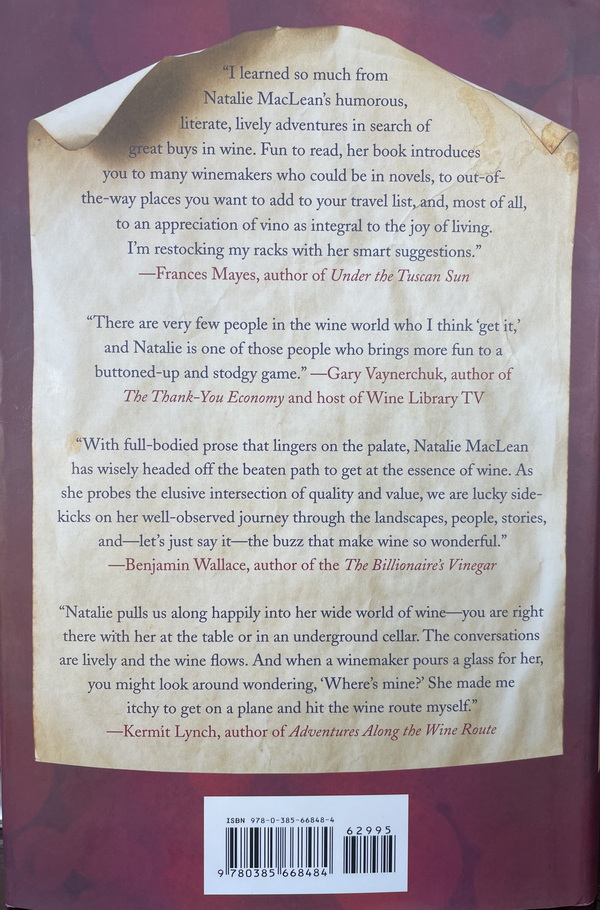
August 2,
Memoirs and novels share the literary device known as tropes. These are plot elements that capture the gist of the book. For example, popular tropes in mysteries include a body is discovered at the beginning or everyone is trapped in the same house as they try to figure out whodunit.
Romance novel tropes include enemies to lovers and the meet cute, when two strangers have an accidental, perhaps awkward meeting at the beginning of the story and eventually become lovers.
The tropes in my memoir include second-chance love, career disaster and recovery, and drawing on inner strength to battle internal and external demons. The feedback so far from beta readers is that I’ve played on these tropes with unusual twists. Yay!

August 8
My publisher and I continue to refine the title, subtitle and back cover blurb. These are so critical in the success or failure of a book.
We’ve remove the word depression from the sub-title so now it’s:
Wine Witch on Fire
Rising from the Ashes of Divorce, Defamation, and Drinking Too Much
– Eliminating Depression positions the book as less of a downer. It’s not a misery memoir even though it has serious themes. It also has humour.
– Depression and Drinking Too Much are both reactions tp divorce and defamation. We didn’t need both.
The new back cover blurb. I feel like I should use a movie trailer voice: In a world …
Wine Witch on Fire
Rising from the Ashes of Divorce, Defamation, and Drinking Too Much
A powerful memoir of how one woman resurrects her life and career in the glamorous but sexist wine industry.
Natalie MacLean, a bestselling wine writer, is shocked when her husband of twenty years, a high-powered CEO, demands a divorce. Then an online mob of rivals comes for her career.
Wavering between depression and determination, she must fight for her son, rebuild her career, and salvage her self-worth using her superpowers: heart, humour, and an uncanny ability to pair wine and food.
Natalie confronts her insider role in the slick marketing that encourages women to drink too much while she battles the wine world’s veiled misogyny. Facing the worst vintage of her life, she reconnects with the vineyards that once brought her joy, the friends who sustain her, and her own belief in second chances.
This true coming-of-middle-age story is about transforming your life and finding love along the way.
Let me know what you think in the comments below.

August 16,
I’ve always had this odd feeling that in my writing, my personality is like an oil painting whereas in person, I’m more diluted like water colours. I think it’s because when I write I can pack a lot into each sentence, then refine it until it’s loaded with meaning. In conversation my thoughts and words haven’t been worked and reworked. I think that’s why I’m shy when I have a casual meeting or meal with a few people versus being on TV, I’m more confident because the segments are scripted.
That’s what makes me nervous about a book tour for this memoir. I’m worried that after attendees read a book that I’ve worked on for ten years, they might find the person behind the book pale by comparison. Maybe I’ll script all my appearances, or maybe I’ll try to get out of my head with this circular thinking and just relax.
Have you ever felt this way, perhaps the difference between your resume, which you can perfect, and your answers during a job interview or some other situation? Let me know.

August 23,
I’m looking forward to the next editing phase for the book. I’m going through it to check the following:
The first sentence of every chapter draws you in and the last one keeps you going
Each scene is evocative enough to make you feel you’re there. This can be through small sensory details like the smell of freshly baked bread or the stormy blue of someone’s eyes. I don’t paint a complete picture because the magic of reading is that when you’re given a few details, your mind will fill in the rest.
Varying sentence rhythm for variety and pacing. Short sentences make you feel like you’re moving quickly through the narrative. Longer ones are better for reflection.
Getting rid of dialogue tags like “he said” and “she asked” when it’s already clear who’s speaking. Another way to do this is to include a character action instead. For example:
“Do you think I’m a fool?” George asked angrily.
Change this to:
“Do you think I’m a fool?” George slammed his fist on the table.
I’ll share more of these next week. How do you improve your writing?

August 31,
As I mentioned last week, I’m now into the copy editing phase for the book. Here are some more things I’m doing to give it that extra buff and polish:
Look for overused words and phrases. Not only are these boring and annoying to readers, but it also means I’m on auto-pilot as a writer and need to dig deeper to find a new way to express myself. Stock phrases can also be a defense mechanism against revealing more vulnerable thoughts and feelings.
I’m also trying to get rid of words that put a wall between the reader and me, such as thought, saw, realized, knew, started or began to. For example, instead of saying “I saw that Mom had laid out the glassware on the table.”
Rephrase to: Mom’s glassware on the table glinted in the morning light.
In the first sentence, you’re seeing the glassware through my eyes. There’s a filter. In the second sentence, you’re in the scene looking at the glassware yourself.
How do you improve your writing?

September 24,
Last week I shared with you the two concepts for the new book cover. Now I’ll let you know which one we went with and why.
Hands down, it’s the glass down version not just for me, but also for 96% of my beta readers! I conducted an informal survey. Here are our collected thoughts:
This memoir is markedly different in tone, content, and approach from my first two books. It’s far more personal, and in parts, more serious. The glass down cover communicates that this is not the third in a series of books. Otherwise, we risk past readers being unprepared for the material. That said, my name is up top so this provides some continuity for those looking for my next book.
The glass up cover feels busy, crowded, cartoonish, not serious enough, wishy-washy, dated, and as though it’s yelling in all caps, even though no one element or word stands out. The illustration competes with the text.
The glass down has more white space, is cleaner, more modern and sophisticated. The double “I” using the stem is creative, as is the flaming i dot in the word fire.
Readers described it with words like fierce, edgy, audacious, elegant, creative, surprising, polished, gritty, inventive, and realistic for a real-life story. A few compared it to the cover and movie poster for The Devil Wears Prada.
This concept surprises and delights broca, the part of the brain that decides whether the executive brain should pay attention. More importantly, readers said that this design would make them stop and pick up the book. It evokes feelings of mystery and intrigue – what’s going on here?
Symbolically, the glass down captures my life turned upside down and then how (according to my readers) this book will turn the wine industry upside down with its message. The fire burns within and yet it’s finally contained as I’ve had enough harassment, drinking, etc. On a purely scientific basis, the fire under the glass would burn out without oxygen, but hey we’re talking literary symbols here … one of many reasons I became a writer and not a nuclear physicist. The other reasons being grades and aptitude.
Anyhoo, thanks for all your comments! The book feels more real now with a cover.
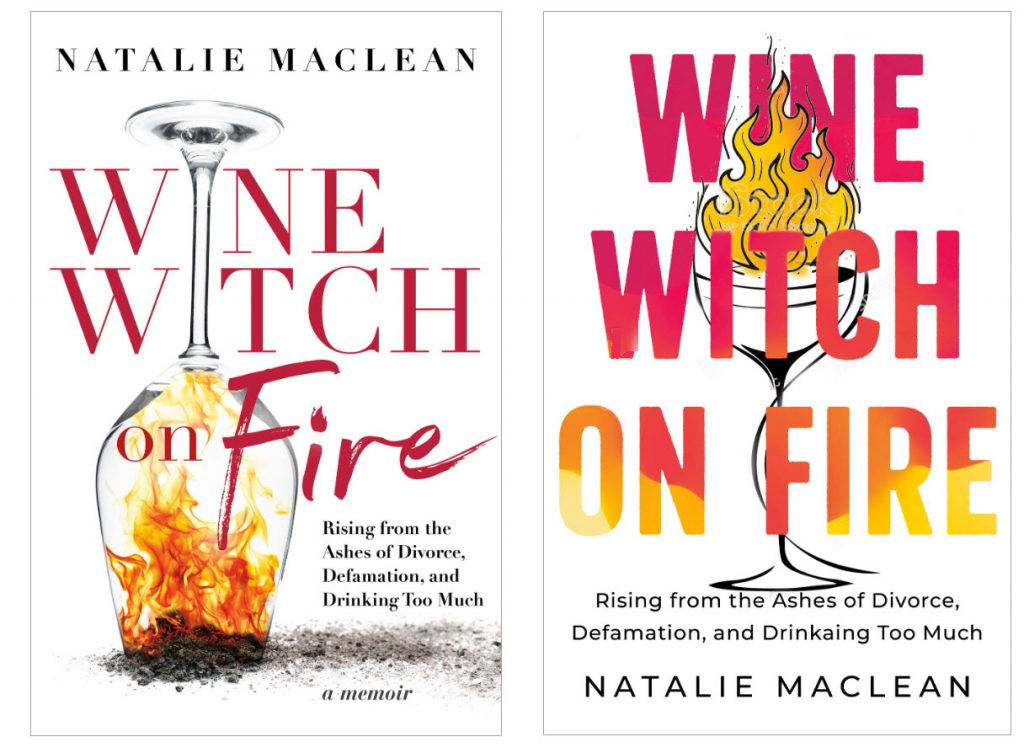
October 3,
Last week I shared with you which cover concept won on the voting. I loved how there were so many different interpretations of the fire under the wine glass.
Opposing the scientific purists who said that the fire couldn’t be contained under the glass for lack of oxygen were those who believed that only someone with magical powers (maybe a witch?) could sustain those flames.
Others said it was symbolic of keeping your inner fire burning even when life gets difficult, while some believed that it’s important to contain an out-of-control conflagration with the tools you have.
Then there were those who swore they could see the profile of a woman rising in the flames, a hidden figure, and one person who said she spotted the fiery corkscrew right away.
What you see depends on who you are, just as what you take away from reading the book.
I’ll share a review with you from Megyn Hayes, a beta reader from Melbourne, Australia:
What a stellar read this was! Like a phoenix from the ashes, this gives women the gift of inner strength and courage to face their biggest fears and give the [all too common] online trolls no attention. I’m so proud of Natalie’s evolution and this book reads like a modern woman’s fairytale of forever after love, success and satisfaction. A definite MUST READ even for a wine novice. I inhaled this book within mere hours of starting and hope this is on everyone’s wish list!! 5 stars
Thanks Megyn!

October 9,
The wine writer I admire most is Karen MacNeil, author of one of the world’s best-selling wine books, The Wine Bible. It’s going into its third edition and has sold more than a million copies to date.But more than the quality of her writing and career success, I admire the brave, public stand that Karen has taken against sexism in the wine industry. Her leadership on this issue is part of my inspiration to write my memoir.
So I was extremely nervous about asking Karen if she’d consider reading my memoir, let alone endorsing it if she liked it. Well, turns out, she liked it. Here’s what she said:
“Courageous—that’s the first word that comes to mind while reading Natalie MacLean’s new memoir Wine Witch on Fire. MacLean is an accomplished wine writer, but this deeply personal book takes us behind the scenes, revealing one woman’s journey and extraordinary determination to become herself.”
This touches me because it’s not just about the writing, but also about the story. Thank you, Karen. I’m incredibly grateful.
October 18,
Memoir usually explores deeply personal issues and often mentions friends and family members. It’s common practice to protect the privacy of those mentioned by changing names and sometimes physical characteristics. This is often mentioned in the author’s note at the beginning of the book. Changing these details doesn’t make the story untrue as the truth in memoir is about larger issues such as overcoming a life crisis or health challenge. It’s the journey of how the author did this and the reflections along the way that matter most.
I’ve also asked friends and family members to read the manuscript and give me input. This was nerve-wracking as you never know how those closest to you will react, not just to how they’re portrayed but also to things you haven’t shared with them previously – those thoughts that run through your mind in the middle of the night. I’ve been fortunate that friends and family have been extremely supportive, though several didn’t realize how affected I was by the traumatic incidents I chronicle in both my personal and professional life in the memoir. I couldn’t have finished this memoir without their continuing encouragement.
I’ll share a review from Lenore Borja, an author of best-selling fiction books from Fort Collins, Colorado:
As someone who doesn’t read a lot of memoirs, I didn’t have any expectations going in. But what I found was a brutally honest, laugh-out-loud, gut-wrenching, and touching story about a woman’s struggle with divorce, her relationship with alcohol, and a bullish online campaign set out to destroy her reputation and livelihood. I was right there with her in those dark moments when the rug was ripped out from under her. It’s an interesting and eye-opening look into the wine industry. Natalie’s writing is smart and funny, and you’ll find yourself lost in her story, eager to learn how she rose above the noise and persevered. Inspiring read.
5 stars
Thank you, Lenore!

October 25,
In addition to friends and family, several lawyers reviewed my manuscript line by line to ensure there was no clause for concern ;) My memoir explores several legal issues, including defamation and copyright. Experts in these areas gave me great insight into the law as well as to specific approaches and remedies to avoid any issues.
Memoir is a personal narrative, but it also involves others to tell the story. I was mindful of keeping the perspective my own with phrases such as “In my opinion,” especially when others may differ. They’re entitled to their own opinions as well as to writing their own memoir to express them.
Beyond this, instead of characterizing someone’s actions or speech, I shared how I felt. For example, I would change the sentence: “He talked about me like I was a wicked witch” to “I felt like a wicked witch when I heard him talk about me.” It’s a subtle change, but it makes the revised sentence indisputable.
I avoided interpreting the intentions of others or reading their minds, which is, of course, impossible even though we often do it in our everyday lives. I also took out any sweeping generalizations, and stuck to facts and events that were documented. Concrete details are more interesting anyway. Compare the statement, “She was always nagging me” with “This was the fourth time today she reminded me to brush my hair.”
I’ll share more of these legal beagle tips next week.
Here’s a review from Gail Herndon, a beta reader from Washington, D.C.:
What a memoir! Natalie tells her story with great vulnerability and brutal honesty, from her marriage, divorce and foray into dating and finding love again, as well as the unrelenting work drama that unfolds simultaneously and somewhat mysteriously in the wine world. Highly educated and accomplished before her enterprise in wine writing, her interactions with misogynistic colleagues are simply shocking, and left my mouth agape. Yet, these stories are sadly relatable. Natalie’s humor and grace are evident throughout, and no doubt contributed to her addressing her attackers with poise. Spoiler alert: she does come out all the stronger and wiser. Big cheers to supporting women in wine, in particular, Natalie MacLean! Her story is well worth the read.
5 stars
Thank you, Gail!

November 1,
As promised, here are more of the things I learned during my legal review with several lawyers expert on issues of defamation, invasion of privacy and copyright. Whenever I wondered in my mind if something could be true about someone else, I countered it with the opposite possibility.
An author is permitted to have speculative thoughts and questions, especially in a memoir when telling a deeply personal story and allowing readers into their minds. But I also aimed to be fair and write without even an ounce of malice for anyone mentioned.
I could only do this with the distance of ten years between what had happened and when I wrote this memoir. The healing was done and so I could write from the perspective of an older, wiser sister looking back on my younger self.
This book isn’t about evening a score or getting revenge, it’s about sharing my story so that those in similar situations, even if they’re in different industries, feel as though they’re not alone. This memoir has stretched me emotionally and I feel as though I’m all grown up now. That’s why I describe it as a true coming-of-middle age story about transforming your life and finding love along the way.
Here’s a review from Drema Drudge, a beta reader a from Indiana:
I think anyone interested in wine, writing, women’s issues, divorce, starting over, or depression should read this. I LOVE her writing. It’s heady and thoughtful. I love the literary bits and references throughout the book. She is so good at creating tension. I kept wanting to race ahead and read, read, read!
I didn’t know much about the wine industry going in, and I learned so much. I was surprised to hear how many people are in the industry, and that it’s as backbiting and misogynistic as other industries. I love the strength the author develops in herself throughout the memoir. I was definitely rooting for her!
5 stars
Thank you, Drema!

November 6,
The last legal issue I’ll share with you for now is the difference between copyright infringement and plagiarism since this also plays a part in my book. Copyright infringement happens when you use someone else’s work, and label it as such, but don’t ask permission to use it. So for example, posting a chapter of a book on your website, and attributing it to the author.
Whereas plagiarism is trying to pass off someone else’s work as your own. For instance, posting that chapter on your website and pretending you wrote it. Neither of these are examples from my memoir. You’ll have to read it to find out what actually happened.
The interesting twist is that copyright law in both Canada and the U.S. allows for the use of copyrighted material without asking for permission if the use falls under the categories of criticism, review, commentary, or education, among other exemptions. So for example, if you’re writing a book review, you can quote short passages from the book as examples of what you’re critiquing.
Most people confuse copyright and plagiarism, and very few understand the exemptions under copyright, which is one of several reasons why my dumpster fire in 2012 blew up so quickly on social media.
Here’s a review from Steven Laine, a beta reader and author of Dragonvine from London, England:
Natalie has crafted her experience into what could pass for an unputdownable thriller. It’s all the more jarring because it’s based on fact. I loved the tension and fast-paced writing.
The flow of her writing is superb, easy to read without unnecessary detours or distractions. It would be easy for an author to be self-indulgent when writing something so raw and emotional, but she deftly avoids this. The story is supremely relatable. Her vulnerability and emotion pours off the page. We’ve all fallen in and out of love at some point, with our work and with others, and while the details differ, the feelings are shared human experiences.
The witch references throughout and connections she makes to her own state of mind and emotion are powerful. The title is thoroughly appropriate.
There’s also a good balance of humor and self-deprecation here. I revelled in the tone of each chapter, some more sombre than others, which kept the overall book approachable without getting too melancholy despite the tough experiences she chronicles. And what a heart-warming ending.
Having been in the food & beverage side of the hospitality business for decades, I can tell you this book resonated strongly with me as I’m sure it will to many others. A gut check of our relationship with alcohol is always beneficial, though often overlooked, as wine consumption has become so normalized, particularly within the trade. Natalie’s heartfelt recounting of her own personal journey made me reflect on all the slights and challenges the women in my life probably endured and continue to endure.
Any man who has a daughter, sister, or mother should read this book. Women with a little witch and fire within them will enjoy it too.
5 stars
Thank you, Steve!

November 15,
In mysteries and thrillers, suspense comes from action. It could be a car chase, the hero entering a room about to be clubbed by the villain or bullets flying through the air in a shootout. In most memoirs, including mine, there aren’t those heart-pounding sequences.
However, in memoir, dialogue is action. Why? Because it’s often rapid-fire, with sentences that are shorter on average than others in the book. That gives a sense of momentum and a back-and-forth rally between characters, as though you’re watching a verbal tennis match.
On the page, visually, it’s also racy because there’s lots of white space. Each sentence or fragment a character says has its own line so there tends to be few thick paragraphs of text. As a reader, you can whip through these pages and feel the satisfaction of motoring through the book.
The only risk with dialogue is when it becomes stilted or expository. I’ll explain what I mean by that next week.
In the meantime, here’s a review from Kim Wells, a beta reader from Newfoundland:
Is this a great title or what? I will take Wine Witch over Wine Babe or Wine Mommy any day of the week!
If you think this is only a book about wine, then you would be mistaken – it is about much more than that. This is a honest, hilarious and touching memoir from Natalie Mclean, which at times made me really angry on her behalf. I related to her feelings of being the recipient of mansplaining and patronizing behaviour, and of being underestimated by some men. The online “witch hunt” which she experienced is a timely and important subject, and most readers can probably relate to the experience of being targeted on social media with sexist, angry or inappropriate messages, although not to the degree that the author experienced.
But lest you get the impression that this memoir is a downer or an account from a man-hater, let me correct that immediately. It is actually brimming with good humour and optimism, describing her journey from emotionally-draining and painful life experiences to finding her place in the world again, with a renewed self-confidence, close family ties and the support of a good partner.
I really appreciated the author’s honesty in this memoir, and for me that is the valuable piece of reading a well-written memoir – it reminds me to face my own problems and demons with clear eyes and equal honesty. I enjoyed this book immensely.
5 stars
Thank you, Kim!

November 19
Last week I mentioned that one of the downfalls of dialogue is when it becomes stilted. The other danger is when it’s expository. Have you ever watched a bad detective show and the characters explain the plot when they talk to each other? Something like:
“Look John, there have been three robberies this week and I think it’s likely that notorious thief from the other side of town is our prime suspect.”
“Yes Susan. I agree with you. We’re going to have dig deep to find some real evidence to finally put this guy away. Where do you propose we start?”
Aghhhh! And it goes on. In other words, they use words not action to tell us what’s happening. That’s exposition and it’s a killer when it comes to dialogue. Characters should never be used to state the obvious or to summarize what’s happened or going to happen.
The best detective shows leave little clues from the beginning through what the characters do rather than say.
Here’s a review from Jennifer Hill, a beta reader from Victoria, BC:
This book is more than a fast-paced and engaging read peppered with wine notes and laugh-out-loud bon mots. It lays bare shocking revelations about misogyny in the wine world and the cover of false bravery that social media provides. But, most of all, it is a courageous and moving story about one woman’s shake-up, and wake-up, that reveals universal wisdoms through her journey to truly seeing herself, witch and all. I loved it and highly recommend it as a great read!
5 stars
Thank you, Jennifer!
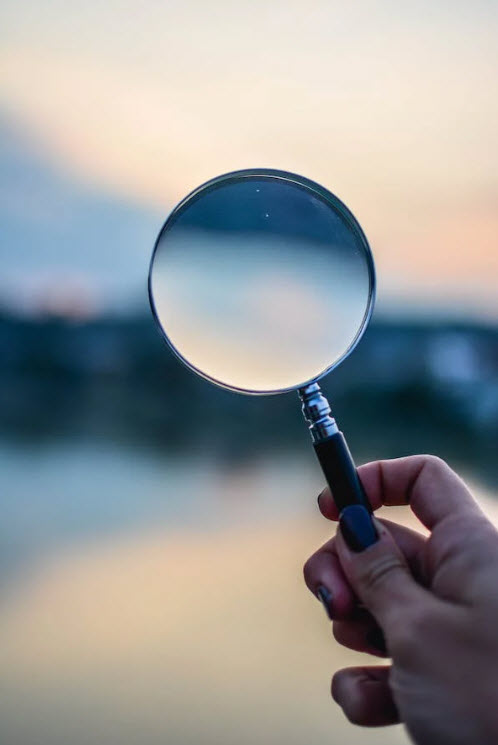
November 29,
Last week, my publisher asked me to write a dear reader letter to accompany the digital review copies that will go to long lead media, like magazines, that have deadlines 3-6 months before publication.
This letter is meant to be a personal expression of what the book means to me and who it’s for. I thought I’d share that letter with you now.
Dear Reader,
Thank you for your interest in my memoir. In 2012, I lost everything: my career, my marriage, and my health. I considered taking my own life. An online group of rival writers tore apart my professional reputation. Then they dismantled my body part by part in public, revealing the corrosive chauvinism in the underbelly of the wine world.
My story draws back the curtain on the slick marketing encouraging women to drink too much, from wine-mom memes to little-black-dress labels. It also dives into the real-life impact of online mobbing and the particular vitriol women face when they blaze their own trail.
I didn’t want to share this story. I couldn’t even look at notes I’d locked away for years. It was too exposing, too shameful. I’d be vandalizing my own privacy.
A decade later, I was inspired by memoirist Glennon Doyle’s advice, “Write from a scar, not an open wound.” But why even write about it after the healing is done? Poet Sean Thomas Dougherty had the answer. “Why bother? Because right now, there is someone out there with a wound in the exact shape of your words.”
After talking with many women in my field who had similar stories but no outlet to share them, I decided to write this memoir. A book can travel so much farther than I can with a message about resilience.
Rest assured; this isn’t another misery memoir. Come with me to my boozy girlfriend get-togethers, some dating adventures with Zero-Effort Men, and several spicy meals with the man who eventually becomes my Cinderfella.
By the end of the book, I hope you’ll feel as though we’ve been chatting over a glass of wine (or three) at the kitchen table. As I share my experiences, perhaps you remember your own and reflect on them in a new light.
We both feel a fire growing inside that can help us weather life’s worst vintages — and come out with stronger, deeper roots.
Cheers,
Natalie
P.S. Here’s the elevator pitch in the deep, husky movie announcer voice: “A powerful memoir about how one woman resurrects her life and career in the glamorous but sexist wine industry. This true coming-of-middle-age story is about transforming your life and finding love along the way.”
Here’s a review from Steven Olinger, a beta reader from St. Louis, Missouri:
Reading this book made me turn inward and reflect – a lot. Over my career, did I help facilitate some of the negative things Natalie writes about? If not, did I witness similar behaviors and what did I do or not do?
My favorite aspects of the memoir: Natalie’s wit and intelligence; sense of humor in spite of everything; her ability to get inside her head, then out again – sharing the experience of lessons learned.
As a former wine snob, I find her writing superb. Her ability of self reflection while inviting the reader to think about their own experiences is unique and wonderful.
5 stars
Thank you, Steven!

December 5,
As I get closer to finishing my manuscript, I start emailing an electronic copy of it every day to my mother. That’s because I have an irrational fear that I’m going to be hit by a bus or some other disaster, and my book will never see the light of day.
It’s one thing if your book is nowhere near finished, but it’s quite another when it’s close to the end. Call me morbid, but my sense of urgency feels like a flame to get this message out into the world and not let it die on the page or in a computer file.
I’m also starting to get the feeling that writing this book could be the last thing I do and that would be okay. I’ve done what I was made to do on this planet. I’ve answered my highest calling.
Here’s a review from Mark Ball, a beta reader from Toronto:
Suspenseful … I kept racing ahead to find out what happened next. Anyone who has been through a traumatic life event (death, relationship, job loss etc…) will relate to so much of what she experienced and the emotions she shares.
Natalie shares things that almost all readers can relate to. There is also practical advice and encouragement for a better future. In terms of the attacks – from personal relationships to professional ones – we have all experienced something similar.
Professionally, I doubt many of us have been hammered to the extent that she was but many may have felt that was happening behind their backs. As for industry impact…there is a lot that needs to be brought into the light. References to Anthony Bourdain are well founded, with the strength of voice in MeToo.
There are new voices that need to be heard who speak not just to scores and technical details of wine but to the emotional feel of wine, circumstances etc…. that energy & passion that is brought to her media hits.
Keep doing what you’re doing, Natalie. I believe Katherine Hepburn said “If you obey all the rules, you miss all the fun.” Stay strong.
Thank you, Mark!

December 12
One of the biggest challenges with this book was to write it without thinking about the backlash I’ll face from a number of online trolls when it’s published. Writing it with an eye on social media is impossible. It’s like trying to write and edit your work at the same time. The brain can’t do both, especially when the self-editing comes from a place of fear.
Writing requires freedom of expression and an expansive feeling to create new connections and patterns of meaning without worrying about the implications. The time for editing is later, with a professional, after the words have made it to the page. This is also when a legal review of the manuscript calms any remaining anxiety. Deep breath.
Here’s a review from Sharon Romani, a beta reader from Boothbay Harbor, Maine:
Written with sharp wit and humor, I thoroughly enjoyed it. The author narrates her struggle through an unexpected divorce and the scrutiny she faced as a wine critic at the hands of the misogynist wine industry. Told with authenticity and vulnerability, you feel as if you’re chatting with an old friend over a glass of wine.
Make no mistake, this memoir isn’t written with a ‘woe is me mentality’. It’s written by an incredibly empowered woman to help other women, who have been silenced by chauvinistic behavior, to find their voice. Thank you Natalie for sharing your story. It’s such an important one and a must read for all.
Thank you, Sharon!

December 15
“Why have you changed some people’s names?” a beta reader asked me recently. Many memoir writers change the names and physical characteristics of those mentioned to protect their privacy.
But what if a Google search reveals the person’s name because they’re a family member, such as a husband, wife, brother or sister?
Changing names doesn’t provide anonymity, but it still creates one layer of privacy, as many readers won’t make the effort to look up names, or they just don’t care. They’re reading the book to be entertained by the story.
That’s why this is an accepted practice in memoir, whereas writers of autobiographies and biographies usually use real names because these are works of history or investigative journalism. The truth in these books focuses on what happened.
The truth in memoir focuses on personal reflection and transformation: how did the author change as a result of what happened? What might the reader learn from the author’s experience as a result?
Someone reading about Winston Churchill’s brilliant wartime strategies likely won’t find as much personal application as they will reading about how someone handled divorce, depression or drinking too much.
Next week, I’ll talk about some of the people in my memoir whose names I had changed initially, but then reverted back to real names in later drafts, after a long struggle with this issue.

December 22,
Apparently, the great American short story writer, Raymond Carver, gave readings while holding a red pen. He was still correcting and improving his work even after it was published and he was on tour.
I resonate with the feeling of never really being done with a book – until someone, usually your publisher – yanks it out of your hands. If everything weren’t done online these days, I’d be running after the van taking the book to the printer, yelling, “Wait, just one more thing!”
My memoir ought to be called The Corrections, but Jonathan Franzen already snapped that up.
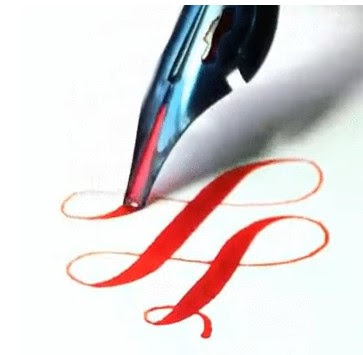
January 16, 2023
I mentioned previously the TV show, Younger, that I’m binge-watching. I wanted to share two more observations about how the publishing industry is portrayed in this series versus real life. The first is that the publishing deadlines are whack. One book is pushed through the process in a matter of weeks. In reality, the acquisition process of selling the book can take several weeks to several months. After the publisher buys the book, and assuming you’ve already written it fully, there are usually months, if not a year or more, of various levels of editing: developmental, copy and line.
Then there’s the creation of a marketing and publicity plan, printing, getting the book listed on online retailers and the sell-in process to bookstores. All of which can easily take another year. On average it’s a two-year timeline, sometimes longer, but I do love fantasy TV.
The other aspirational element is all the glamorous parties the publishing staff attends. The days of the book tour are over, but it’s great to watch this call-back to another era.
Personally, I hope to host events in Toronto, Ottawa, Niagara, Picton, Halifax and possibly Montreal and Vancouver. But these will be on my own dime and I’ll try to break even with a modest ticket fee. There will be wine involved, so I hope you’ll come out to meet me and raise a glass or two together.
Here’s a review from Kate Goodine, a beta reader from Ottawa:
I would say this book is a triumph of the human spirit, heart and intellect. If I were younger, it certainly would have fuelled the courage needed to reach out and explore all of life’s possibilities, to live my best life and more fully achieve my own potential.
I’ve always been curious about what attracts people to wine and how they draw pleasure and comfort from it. The intimate descriptions of Natalie’s relationship with wine gives me insight into such an experience. I also learned a lot about the wine industry and how it works in Canada and around the world. And her story certainly represents a microcosm of the societal changes that have been occurring in the last decade.
I really enjoyed her lighthearted sense of wordplay and I am anxious to taste some of the lively wines that were described throughout the book. I’d like to develop a more discerning palate and learn to appreciate the flavour notes that Natalie points out.
I give it five stars because reading this book is like having a conversation with her. I felt tuned in to the lens through which she views life. I’ve really enjoyed getting to know you, Natalie.
5 stars
Thank you, Kate!

January 21,
Great news for those who love to listen! My agent has just sold the audio rights for my memoir to Tantor Audio, one of the largest audiobook companies in the US. The audiobook will be available worldwide.
They’ve given me the first opportunity to audition to be the narrator. However, if I’m not a fit, I get to approve the person who will read the book. I pick Reese Witherspoon!
I’m so thrilled with this because audiobooks are how I read, and apparently an increasing number of people do as well. The pandemic accelerated the growth of audiobooks. Now with big players like Spotify investing $3.5 billion in the space, there’s more excitement than ever.
I know you listen to podcasts, or at least one. Do you also listen to audiobooks? Got a favourite you can recommend to me? Let me know.
Here’s a review from Kathy Kelley, a beta reader from Philadelphia, Pennsylvania:
A great and powerful memoir. This book is quite interesting – and really made me think.
I also really enjoy books with data and scientific findings. I appreciate that she provided evidence, quotes, and examples from others that work in tandem with her own experience.
I like that she wove the witch references through the manuscript.
5 stars
Thank you, Kathy!
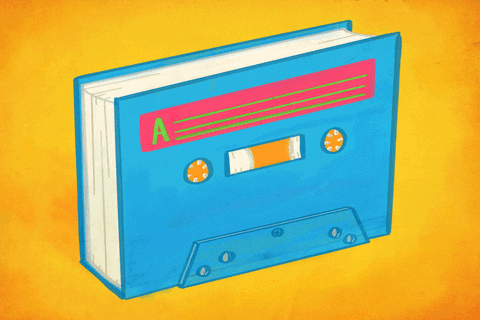
January 26,
One of many things I learned while writing this book is that it’s not a work of investigative journalism, even though I do delve into some hard-hitting issues from online bullying to sexism in the workplace.
The job of a memoirist is not to report on an issue or to keep updating it. This is especially true because most memoirs only look at one slice of time, like a year or two. The memoirist is not a reporter trying to inject equivalency by interviewing others mentioned in the book for their current status.
A memorist’s job is to simply tell their story. Through that story, and the subsequent reflections and realizations, the author hopes to connect with the reader on a very personal level. By the end, the reader feels as though we’ve had a rich and satisfying conversation over a glass of wine at the kitchen table.
Here’s a review from Nina Babich, a beta reader from Kansas City, Kansas:
This memoir is excellent on two levels: 1) the personal level: going through a divorce, dealing with scandalous accusations, facing alcoholism; and 2) the industry level: sexism and gender bias in wine tasting. Women everywhere could identify with one or many aspects of the author’s story. I really felt for her when her professionalism was under public attack. I think I would have just sunken into depression. She wrote a book instead. Glad she did. The story needed to be told.
5 stars
Thank you, Nina!

January 30,
Lately, I often get too caught up in the flurry of things to do to prepare for this book launch. My mind is racing ahead to which journalists to contact for potential reviews, which venues to book for launch parties and which bonuses to create for those who pre-order the memoir.
Slow breathing helps. But I’ve discovered another technique while listening to another podcast. It’s part of CBT, cognitive behaviour therapy called 5, 4, 3, 2, 1. You look around where you are and note 5 things you can see – a snow-laden pine tree, a neon restaurant sign, etc. Then you note 4 things you can hear – traffic, music, etc. Then it’s 3 things you can touch, 2 things you can smell, and one thing you can taste. For that last one it’s usually just my tongue.
The point is that not only does it slow down my worried monkey brain which can’t think of two things at the same time, it also makes me supremely present in the moment and in my current environment. It literally makes me stop and smell the roses – or the cantaloupe, whichever is nearby.
Let me know if this technique helps you too.
Here’s a review from Cathy da Costa, a beta reader from Toronto:
This inspirational book would be an interesting read for a book club and allow for discussions about overcoming divorce or job loss. The personal details made me feel sad and disgusted at many points but then I felt satisfied at how things turned out. Nothing in the book is easy or trite. The book explores the idea of self-care and control in regards to personal relationships and career.
I liked the fast-paced style with the action being driven by dialogue. The humour is sprinkled in very appropriately to balance the sadness and tension in the book. Honestly, it’s a fabulous book and a fast-read so even people who aren’t women and don’t drink wine could enjoy it. I would rate it a 5.
Thank you, Cathy!

February 5,
Every time a beta reader tells me that I’m so brave to expose myself so publicly in my memoir, I get nervous. I know they mean well, but I wonder, did I go too far?
I write about my issues with drinking too much wine during my divorce and career meltdown. I also talk about being hyper-competitive and a perfectionist.
Perhaps putting all this on the page is a way of holding myself to public accountability because everyone who reads this book will know all my flaws. I’ll know they know. There’s no more slipping up in private.
That’s the downside of being so open. The upside is the amazing connection I feel with readers as they send me comments on the book. They feel they are not alone in their struggles, and now, so do I.
Here’s a review from Tom Lutz, a beta reader from Iowa:
Wine Witch on Fire is a deeply personal, yet artfully entertaining introspective that doesn’t just tell Natalie MacLean’s story, but invites you into it. I’m always particularly intrigued by books that make me really stop and think, and I found myself doing just that multiple times throughout the book.
5 stars
Thank you, Tom!
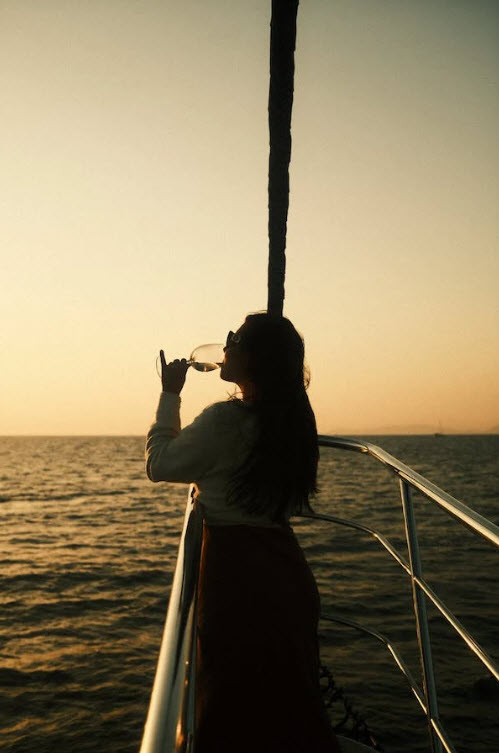
February 13,
One of the challenges in most memoirs, including mine, is weaving a dual timeline. There’s the story that took place in the past and the present-day reflections that make sense of it. Without the story, you don’t have a book. Without the reflection, your story won’t appeal to anyone beyond your friends and family.
That’s because what happened isn’t the main thing for readers; it’s what you did with it, how you felt and what you learned that makes the story universal. The trick is making the transitions between past and present smooth so that the reader doesn’t feel a jarring sense of getting bumped out of the narrative flow.
This technique made my memoir far harder to write than my first two books, which had linear narratives. Learning to do this made my brain hurt, but my mind expand.
Here’s a review from Carla Richards, a beta reader from Calgary, Alberta:
This memoir not only dives into the experience of wine, the tastes, smells and pairings but the unexpected darker side of the world of wine. Both hilarious and heartbreaking, Natalie MacLean’s story of struggling through a divorce, the misogynist wine industry and modern-day dating, shows the human spirit can really survive anything. Especially with a good glass of wine!
The witch metaphor Natalie uses throughout is so poignant on how women’s history and our current world are not so far apart. But she does it with such insight and wit, it makes for an addictive read.
Extra bonus points for the wine pairings that go with the book. I really think that should be required in all books!
5 stars
Thank you, Carla!
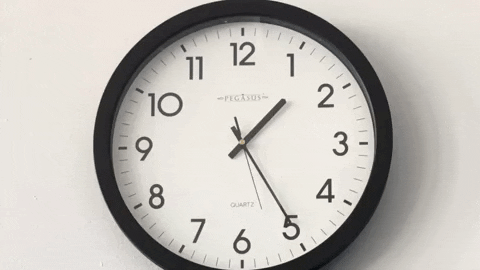
February 22,
As I’ve been traveling on this publishing journey, I’ve also been watching the TV show, Younger. This seven-season series glamourizes the publishing industry the way that Sex and the City glamourized writing a newspaper column.
In both, the lead characters have a passion for writing that thrills me. Editors fight for the books they believe in; authors struggle to get the right word on the page.
The shows also share the ridiculous notion that freelance writers, authors and publishing company staff could ever afford the dazzling haute couture fashions they wear based on meager salaries and advances. Many people entering publishing today have the financial support of their parents or a spouse otherwise living in the big cities would be unaffordable.
Personally, I’ve already spent my advance seven times over in hiring editors to strengthen my book and lawyers to review it.
Still, I love the heady excitement about books in Younger, which seems to recall the good old days of publishing.
Here’s a review from Ryan Moore, a beta reader from Stevens Point, Wisconsin:
This memoir is excellent. I read it in two marathon sessions over two days. I was absolutely drawn into the story. She not only explains the wine industry in a way you can understand, but she shows you what she’s been through professionally and personally.
It’s readable and relatable. I was rooting for her the entire time. I’m so glad she overcame all the adversity she was facing and has landed in a better place.
5 stars
Thank you, Ryan!

February 28,
My book baby went to the printer last week. I had some of the same feelings when my son went off the university.
It’s now out of my hands and being shaped by the presses and ink and paper that will give it its final form. That’s exciting and terrifying.
I won’t have the books until mid- to late-March. The publication date is officially May 9th in Canada and June 6th in the US and worldwide. Yay!
Until then, I’m heads down on trying to drum up some media interest in the book. If you are in the media or know someone who is in TV, radio, newspapers, magazines, podcasts, or websites related to food, drink, books, memoir, writing, online bullying, women’s issues, entrepreneurship, mental health, self care, relationships or divorce, please let me know. I’m also interested in connecting with influencers in any of these categories who are on Instagram, TikTok, Facebook and other social media channels and platforms.
Every little bit helps, especially when there are 2,700 books published every day. It’s hard for a book to break even, let alone break out. I hope to hear from you at [email protected]
Here’s a review from Terry Vipond, a beta reader from Ottawa:
So many experiences described in the book mirrored my own split. I wish this book was around during that time – it’s like that one person who understands exactly what you are going through at a time when your married and single friends – try as they might – just can’t relate. Natalie Maclean has written a master class on navigating divorce and heartbreak and learning how to move on to find true contentment.
As a wine enthusiast, I’ll be giving much more respect and attention to female reviewers and giving much less time to male reviewers (particularly the older ones). I’ll also be looking deeper at the back story of wine producers, again with a focus on strong female lead endeavours.
On a personal note, it’s a great reminder that the path to healing is not linear. By continuing to reflect on our character strengths and weaknesses and most of all, learning to forgive ourselves, creates the space for love to re-enter our lives. By standing in our authenticity, we can take on anything that comes our way.
I really loved when the story flowed into the historical accounts of women who were persecuted as witches. I thought it brought extra magic and depth to the story. I also really liked how this flowed into spotlights on women wine producers around the world. These backstories really highlight Natalie’s prowess of wine and elevate her reviews beyond her super tasting ability.
I definitely give this Five Stars!
Thank you, Terry!
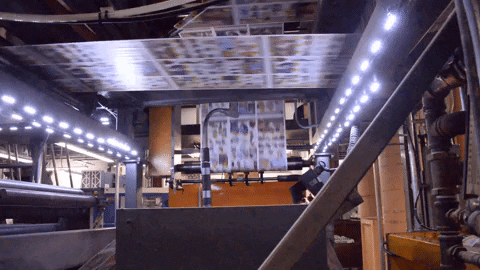
March 7,
Now that my book has gone to the printer I’m feeling a little empty nest syndrome. Sure, the manuscript is still on my computer, but the memoir is now out of my hands. I can’t make any more changes. I can’t stop it from going out into the world. Most of all, I can’t control what people will think of it. That last one is a killer for someone, like me, who always wants to be in control.
But just as I had to open up on the pages as I wrote it, now I have to open up as I face the public and its reaction. Whether in interviews or on social media or through the emails that will come in, I need to keep responding with vulnerability and an open heart.
The negative reviews will come. That’s what a book does: it provokes both positive and negative responses. Just as my son, who graduates from computer engineering in May, will have to find his way in the world, so, too, will this book. It’ll have a life and journey that is completely separate from me. It’s probably best if I’m not there to interfere as someone is reading my book. I imagine standing over their shoulder asking, “Hey what did you think of that insight? You didn’t miss it, did you? You seem to be turning the pages pretty fast.”
All I can do now is hope that it’s received in the spirit it was written: with love and a desire for hope, justice and resilience for all those who read it.
Here’s a review from Lisa Marzano, an early reader from Chicago:
I love a good “overcoming obstacles story!” I felt the author’s anxiety at the end of her marriage, wondering how to pay the bills, watching herself be “cancelled” on-line and trying to manage her drinking (balancing professional vs. personal drinking). I also felt the peace she achieved – and appreciated the insights she gained throughout the process.
I also see how much the author learned about herself and what she could have done differently – not many are able to evaluate themselves objectively. I love that (because it’s true for all of us!)
If you liked “Wine Girl” then you will like this one – it’s another look at the wine industry from another woman.
I was made more aware of the industry having read Wine Girl by Victoria James. THIS story shed light on cyber-bullying – with the emphasis on the cyber part, because they were COWARDS in person. I suspect that part translates to all industries as folks are much more confident while hiding behind a computer.
My favorite parts were getting her writing business off the ground, facing the bullies in person and maintaining poise while doing a TV segment on pairing wine with fast food (despite those who mocked her for the idea). Again, I also really liked the insights the author gained while telling her story.
I believe this book would pair nicely with any book club! Great story-telling about triumph over tragedy, overcoming obstacles and finding peace.
5 stars

March 14,
Pre-orders can make or break a book launch. These are the orders or purchases that customers make on bookstore websites for a book before its publication day.
Why are they so important?
High pre-order numbers send 3 vital signals:
The first is to tell bricks and mortar bookstores that they should stock it on their shelves, maybe even display it. This is critical since the majority of the 2,700 books published a day don’t even make it to bookstores.
The second is to nudge online retailers to show the book to those browsing in a relevant genre on their website. For example, if someone types “best memoirs” into the search bar.
Third, it lets the publisher know that they can be confident in printing enough books to satisfy demand rather than being caught out of stock without enough books ready to go on publication launch day.
While every pre-order is a vote of confidence for the book, the purchase of several copies per person is often the difference between success and failure.
Why would you want more than one copy of a book?
Of course, I have 7 reasons why as they relate to my memoir:
You can be someone’s book angel and give them this book, especially young people entering the workforce or career veterans who’ve faced similar issues of divorce and sexism. You may not even know who this person is right now, but you’ll have a signed book ready.
Get a signed copy now for Mother’s Day (I’ll mail signed bookplates) or for someone’s birthday or holiday gift. Signed copies may not be available a few months from now. Get them while you can.
Give one to a Little Free Library, those little mail boxes of books you see in your neighborhood.
Be part of the team that gets this book on the bestseller list to spread its message of hope, justice and resilience. All pre-orders now count as the first week of sales and it’s that first week of sales that a book has its best chance of getting onto a bestseller list.
Buy copies for your book club or wine group to read together even if you don’t have an official group – there’s a book club guide that will guide the discussion and suggest wines.
Qualify for juicy bonuses. If you buy 1-4 copies, you’ll get to be part of my private book club: an online wine tasting and book reading plus an open Q&A discussion, 6 wine and food pairing templates and personally autographed bookplates for your books.
If you buy 5 copies or more, you’ll get everything I just mentioned plus you’ll be in on my writer’s workshop for a behind-the-scenes look at getting started on that book you’ve been thinking about for a while, landing an agent, and working with a publisher. You’ll also get a wine and food pairing course with me, the lost chapters that didn’t make it into the memoir and exclusive interviews with the main characters in the book and what they’re doing now.
Wine Witch on Fire: Rising from the Ashes of Divorce, Defamation, and Drinking Too Much is available for pre-order now from all bookstore websites.
Please consider ordering your copies today to send those make-or-break signals to the bookstores and to qualify for the juicy bonuses.
You’ll find all the info about the bonuses and links to retailers on my site as well as at the website www.winewitchonfire.com.
Your support for this ten-year labour of love would mean the world to me. Thank you!
Here’s a review from Lee Romano, an early reader from Durham, North Carolina:
Her writing style is wonderfully engaging — as if she’s right there with you, sitting on the sofa across from you, sharing the no-holds barred ups and downs of her life, and the “secrets” of the wine world. Natalie’s book will have you feeling all the feelings along with her, and when you’re finished, you’ll pour another glass to toast to her grit, determination, and her love of all things wine.
5 stars
Thank you, Lee!
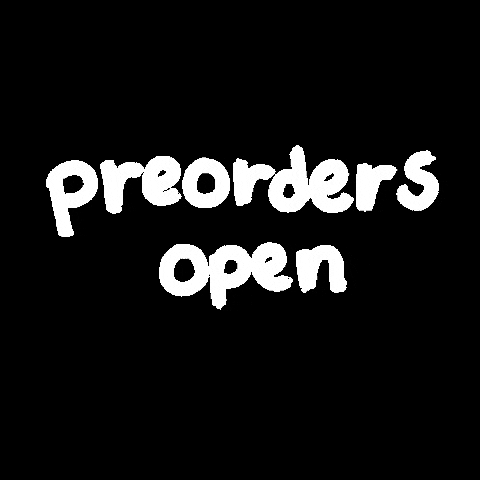
March 22
One of the many juicy bonuses I’ve created for you when you pre-order the memoir is my own private book club gathering and wine tasting online. Come on your own or bring your book club or wine group members with you if they’ve preordered it too.
I’ll start by guiding you through a tasting of wines mentioned in the book. I’ll choose those that are widely available, but don’t worry if you can’t find them all as I’ll suggest substitutes.
I’ll be reading some of my favourite passages in the book and talking about some of the hardest parts of writing this memoir and those that brought me the most joy.
Then I’ll open it up to a Q&A. Ask me anything about the book, wine or life. If you’re curious about the process of writing a book or what has happened to the people mentioned in the memoir since then, this is your time to find out.
Think of this like the ultimate wine and book lovers book club gathering. We’re going to have so much fun, maybe a few tears and you’ll feel that connection with others who share your passion for reading, thinking and drinking.
You’ll find links to all the juicy bonuses and retailers to pre-order the book no matter where you live at winewitchonfire.com.
Your support for this ten-year labour of love would mean the world to me. Thank you.
Here’s a review from Courtney Brillhart, an early reader from Columbus, Ohio:
This is a page-turner because I wanted to know what happened next. There were a lot of surprising moments, a lot I felt I learned and at times feeling sad, empathetic, angry and relieved. I could really relate to the anxiety she was feeling, but in this context that was new for me. This memoir is similar to one I read recently – “Broken” by Jenny Lawson.
I learned a LOT about the wine industry and the “behind the scenes” that I wasn’t aware of previously, for better or worse. I would also say that it gave me an inside look into how wine reviewers do their job and what’s expected of them. I’m going to be more intentional in wines I choose to buy or wineries I choose to support. I also learned more about what it’s like running an online business. It was an interesting take on what damage can really be done to someone whose business is primarily online.
At first I didn’t really understand the “witch” theme, but as the story was pieced together, it absolutely made sense later in the book. Overall I like the Wine Witch theme in general – it’s certainly original. I’m sure it took a lot of courage to write this, but I think she has a wonderful book here in the making. The more vulnerable we are, the better we all will be, in my opinion.
5 stars
Thank you, Courtney!

April 12
My publisher and I have just published the companion guide to my memoir. This is for book clubs, wine groups and individual readers of the book.
It has lots of discussion questions, tips on how to organize an informal wine tasting as well as all the wines from the book plus more along with links to my latest tasting notes and food pairings.
I must say that it also looks beautiful. The publisher had the design team create a custom cover as well as formatting the interior pages beautifully. Those who’ve seen it believe that we could charge for it, but we’re not.
You can get the guide for free at:
WineWitchonFire.com/Guide
Here’s a review from Alain Chamsi, an early reader who lives in Ottawa:
Sadness, joy, anger, bewilderment – a rollercoaster of emotions as we follow Natalie (the Wine Witch!) on her voyage of self-discovery and affirmation as she deals with heartbreak, rediscovers love, finds her voice, and takes on the misogynistic wine establishment (those cowards don’t know what they’ve unleashed). Quite the ride!
Personally, I was aware of some of the issues with the industry, but not of the scope of the problem. That such influential people could behave in such an inappropriate way left me gobsmacked. There is no place or time for this sort of behaviour and it needs to be confronted at every turn, by all of us.
My favourite part – I like her writing style, the humour and how she intersperses it with wine tidbits here and there. This is more than a book for her and that shows – in a very good way.
5 stars
Thank you, Alain!
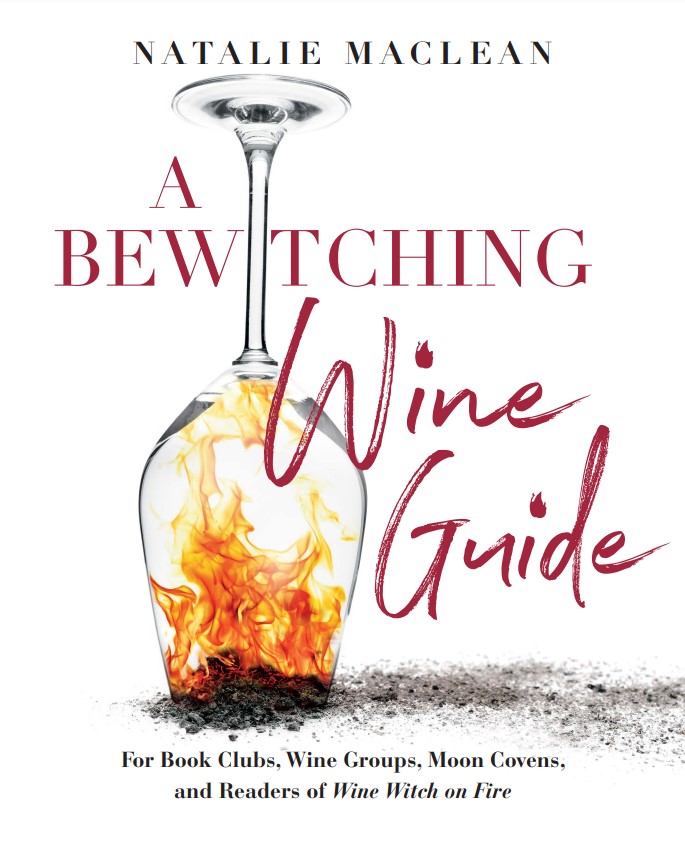
April 25,
We’re just 14 days away from publication day! I’m excited and terrified. I’m reassured by the terrific response to the book from early readers. But I’m also nervous about the reaction from a wider audience and yes that includes a potential backlash from the trolls mentioned in the book.
If you’d like to support this book and this podcast, please pre-order it now from any online retailer no matter where you live. Buy copies for your friends and family. Every little bit helps spread this message. I’ll put a link in the show notes to all the retailers worldwide at nataliemaclean.com/230.
If you’d like to be part of the launch team, please let me know. This isn’t a big time commitment. I’d be asking you to do a few quick but important things over the next month.
Even if you haven’t read the book yet, you can help by posting on your favourite social media channel that the book is available online or telling a friend about it. Again, every little bit helps.
If you’re interested, please email me at [email protected] Your support would mean the world to me and you’ll be part of a small, but mighty group of people who believe in this book’s message of hope, justice and resilience.
Here’s a review from Rosanne Webb, an early reader who lives in Halifax, Nova Scotia:
I thoroughly enjoyed reading this book. I would get to the end of a chapter and think one more and suddenly it would be 2 a.m. l loved the titles of the chapters. I enjoyed her writing style. Being very visual I could imagine her mother sitting at her kitchen table or meeting her at a highland dance event where she was performing.
My husband and I debated the title of this book and I told him you have to read the whole book to see what is involved. I personally liked the title a lot and equated it to the Phoenix rising from the ashes.
I love the references to witches. We celebrate la festa della Befana. This Befana really likes Vin Santo and cantucci for the gifts she brings.
I liked how her book ends as a book of healing and how you interpret it depends on who you are. To me it’s a coming-of-old-age “about creating my own labels rather than accepting those others slapped on me”.
5 stars
Thank you, Rosanne!
May 18,
As I mentioned last week, the book has just launched in Canada. It will launch in the US and around the world June 6th, though it’s also available for pre-order now.
Launch week was a whirlwind! On Monday, I spoke with Jeff Sammut, host of the popular radio show Canada Now on SiriusXM. You can listen to the full conversation on channel 167.
Then on Tuesday, I spoke with the hosts of the CBC drive-home shows from coast to coast – 14 of them until my lips almost stuck together.
On Wednesday, I hosted a launch party in Toronto at the Clio Club, which is a stunning venue, very chic. There were about 70 in attendance which was amazing, especially since we had only about a week to sell tickets.
Then Thursday was CTV’s The Social – I was so nervous about that because I’ve only ever talked about wine on the show, but this was personal and the subjects more serious than our usual banter. However, the hosts were so supportive and I was really happy to underscore the book’s message of resilience. As I explained to the hosts, a witch is a wise woman who has been through the flames and come out on the other side stronger, wiser, fiercer.
After the show I got on the road to Hamilton and while driving there, did a 15-minute interview with Steph Vivier, host of the Weekend Edition on Newstalk 610, a Bellmedia radio affiliate in Niagara. We chatted about my tips for how to moderate your alcohol consumption while still enjoying wine, which early readers are finding very helpful.
Friday morning was CHCH Morning Live TV with an interview with host Annette Hamm. The book really resonated with her, and as I mentioned, even though the specifics of our stories may be different the feelings are the same and it can be healing to read someone else’s story when they’ve put into words what you’ve felt yourself.
Then it was back on the road to Niagara, with pit stops at bookstores along the way to sign the copies they had in stock. Saturday morning was glorious in Niagara and I enjoyed a gorgeous breakfast of eggs benedict at the Riverbend Inn. Then I walked over to Peller Estates Winery where I hosted a tasting with winemaker Katie Dickinson in the cozy cellar room for one group and then a three-course pairing lunch with Chef Jason Parsons for another group.
I drove home to Ottawa on Sunday with more pit stops at bookstores. I don’t think I actually needed gas in the gas as I was still riding high from the week.
The book hit number #1 on Amazon and was sold out there and on Indigo Chapters for almost a week until they reordered more books which are now being shipped out by those helpful robots.
Thank you again for all your support for this book! If you enjoyed it, please review it on a bookstore website and/or post on social media and tag me:
Even better, post it on whichever social media channel(s) you like and tag me:
Instagram @nataliemacleanwine
Facebook @natdecants
Twitter @nataliemaclean
LinkedIn @nataliemaclean
TikTok @nataliemacleanwine
You don’t have to have finished the book to do this if you like what you’ve read so far. I’d love to see a picture of the book and your fave wine paired together!
If you haven’t read the book yet, you can still help by posting on your favourite social media channel that the book is on sale now or by telling a friend about it.
January 14, 2024
I’ve just sent a sound clip to Tantor Media, one of the largest audiobook producers in the US that has published some of my favourite authors. Although we’ve signed the deal, the clip is an audio audition of me reading from Wine Witch on Fire: Rising from the Ashes of Divorce, Defamation, and Drinking Too Much. This is such a personal book for me that I hope they’ll allow me to narrate it versus hiring an actor.
The other challenge is getting the sound quality high enough such that they’ll let me record from home versus having to spend a week in Toronto at their studio. At home, I can space out the recordings without going horse as it’s quite a strain on the voice to read with emotion and energy 4-6 hours a day. I know because I did that for my first book, Red, White and Drunk All Over: A Wine-Soaked Journey from Grape to Glass, which you can get from Audible.com.
My wonderful podcast editor, Alex, gave me some excellent advice about positioning my microphone as well as feedback on the various places I recorded sound clips around my house so that I could send in the best one. Thank goodness I won’t have to jam myself into a small closet to get the best acoustics. It was claustrophobic in there!
Anyhoo, I should know very soon whether or not I’ll get the green light to narrate and/or do it from home. Keep your fingers crossed for me please.
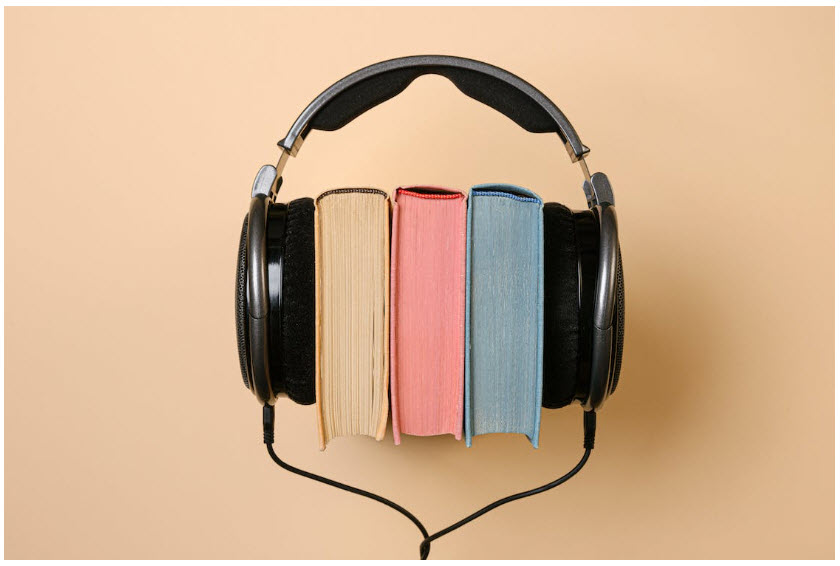
January 21, 2024
Great news! Tantor Media has given me the green light to narrate the audio version of Wine Witch on Fire: Rising from the Ashes of Divorce, Defamation, and Drinking Too Much rather than hiring an actor and bonus, I can record from home rather than having to spend a week in Toronto! Yay!
I’m looking forward to this journey as I’m an avid audiobook listener – that’s how I read. My eyes get too dry and tired reading physical books. I also devour many, many podcasts every week, on books, writing, film, pop culture, artificial intelligence, tech industry issues, health, happiness, food and wine – although I do tend to conflate those last three.
I’m always listening to something when I go for a walk, put on makeup, and even when I’m going to sleep. It’s the only way I can get my mind to press pause for the day. Perhaps I should be listening to more meditation podcasts.
I’m keen to learn about the process of recording the book as so much has changed since I did that for my first book, Red, White and Drunk All Over: A Wine-Soaked Journey from Grape to Glass, which you can get from Audible.com. I’ll keep you in the loop!
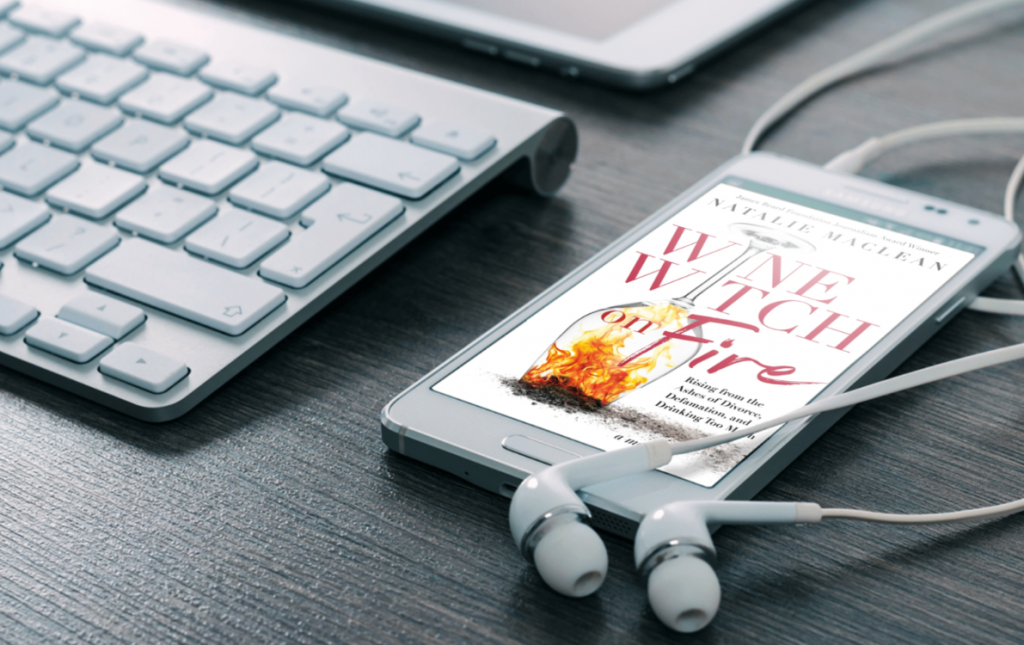
May 13, 2024
Speaking of books, I’ve just started recording the audio version of Wine Witch on Fire: Rising from the Ashes of Divorce, Defamation, and Drinking Too Much. I’m working with Tantor Media, one of the largest producers of audiobooks in the U.S.
It wasn’t guaranteed that I would get to narrate the book as they often hire actors or professional narrators. I had to audition. Fortunately, they’re giving me the chance to do this.
When I recorded my first book, Red, White and Drunk All Over, I went into a local studio for two hours at a time, which I found gruelling. You may not think of constantly talking for two hours as difficult, but once you get past 30 minutes, your mouth and throat start drying out, it becomes easier to lose focus and start mispronouncing words or stumbling over them.
Professional voice actors and narrators have the vocal athleticism to record for 6-8 hours. Hats off to them, wow.
However, because Wine Witch is such a personal story, I wanted to be the one to tell it, or should I say, speak it. I know where to infuse emotion and what’s meant to be funny – whether it is or not is another story.
Recording this book is much more humane since I’m able to do it where I record this podcast in my home office. My daily routine is to record for about one hour each morning to keep my voice fresh and my energy high. I have until the end of May to complete it, so fingers crossed that the sessions continue to go well. I’ll share more behind-the-scenes updates next week.
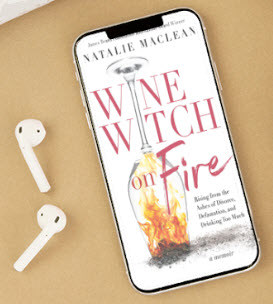
May 19, 2024
Audiobooks represent the fastest-growing segment in publishing, with sales up 20% over last year. They were already popular before the pandemic, but they really soared when we all had to bunker down with in-home entertainment. Their pace of growth hasn’t stopped since.
Some publishing experts believe that audiobooks will have a longer shelf life than their print counterparts.
The ideal timing to launch an audiobook is when the print and ebooks are published so you can capitalize on the marketing efforts and appeal to those whose only mode of consuming books is auditory, like me.
That said, it’s been one year since the Wine Witch print and ebook launched, so this is going to be more like a secondary launch with a separate company. But it’s still worth doing, especially since I’ve heard from so many people who are waiting for this format.
This includes a surprising number of people who are vision-impaired and who are so loyal to this podcast. It makes me happy to be able to serve these listeners in a meaningful way.
I don’t have a launch date yet, but when I do, you’ll be sure to know. In the meantime, I hope you’ll wish the little Wine Witch a happy birthday on social media and tag me.
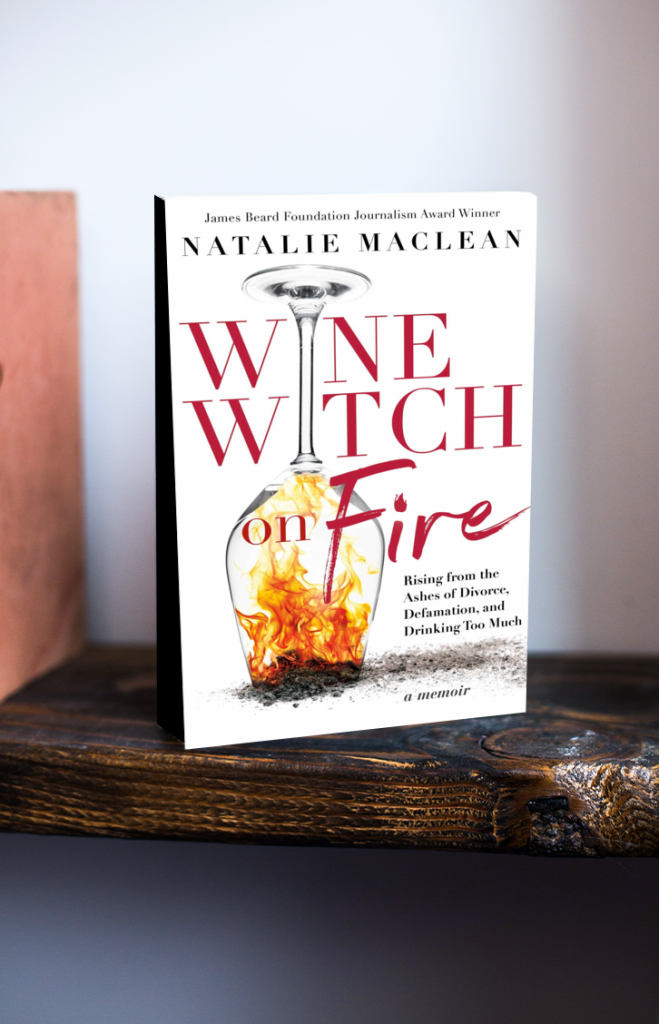
June 14, 2024
it’s taken me a month to finish recording the audio version for Wine Witch on Fire: Rising from the Ashes of Divorce, Defamation, and Drinking Too Much, but I finally wrapped it up at the end of May. I booked off two hours a day most days to record two to three chapters at a time.
You might think, “Wait, Nat, is your audiobook 60 hours long?” No, it’s only (air quotes) 8 hours long, which is actually pretty average for an audiobook. So was I drinking while recording? I mean what took so long you might ask?
In the audiobook industry they talk about finished hours, meaning the actual length of the final book as opposed to how long the recording took, which is always much longer because of mistakes, mispronouncing or swallowed words, accidentally skipping a sentence, coughing, sneezing, sniffling, and so many other fumbles. In fact, it becomes a celebratory moment when you can make it through just one sentence without a retake.
Try talking out loud for two hours straight and you’ll see what I mean. Your mouth and throat dry out and tighten, the text starts dancing on the screen zooming in and out, your legs feel like they’re going to buckle under you.
I recorded the book while standing up, just as I do for this podcast so that I have higher energy and my wild hand gestures don’t knock over my tea, the microphone or anything else in my orbit. You’re not simply reading your book out loud in a normal voice, you’re performing it as if on stage for a live audience. So this intense process feels a bit hallucinatory when you’re not a professional audiobook narrator.
I used all the pro tools I could muster, from sliced green apples and mint gum to make me salivate, but not too much, to my favourite cool smooth stone to hold when I thought I was losing it. I avoided dairy (too drying), did some deep knee bends before starting to get my blood flowing
Fortunately, I had already read or mumbled my book aloud three times during the editing process. This is so painful, but it’s how you catch typos, overused words and long-winded sentences that leave the reader gasping mentally. It’s also how you learn to vary the rhythm and tempo of your text by mixing short and long sentences.
That not only prepped me for the audiobook recording, it also saved me from the ghastly experience of discovering many typos when the book is already in print. There are industry horror stories out there of writers finding hundreds of typos that somehow slipped by the writers and their editors. That’s actually easier than you think as our minds naturally fill in gaps when something’s missing so that we can understand what’s been written.
Anyhoo, I’ll have another update for you next week as we get closer to the end of this process.
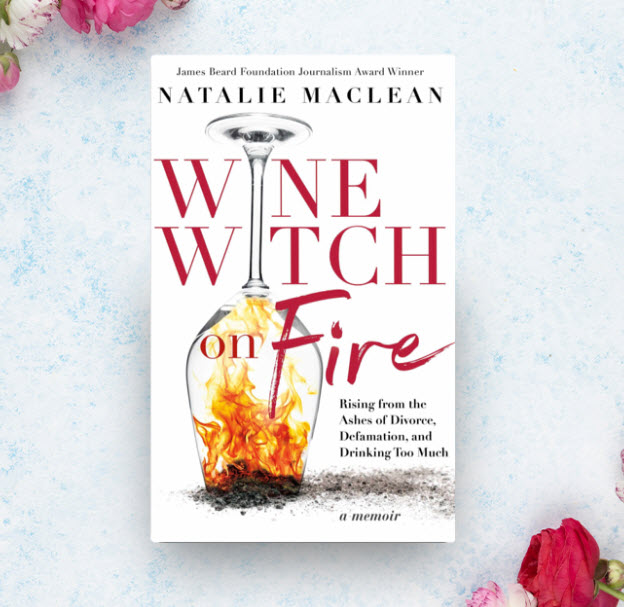
June 21, 2024
As I mentioned last week, I recently finished recording the audiobook for Wine Witch on Fire: Rising from the Ashes of Divorce, Defamation, and Drinking Too Much. I’ve been waiting on tenterhooks to hear back from Tantor, my audiobook publisher, whether my recording was up to par since I recorded it from my home office rather than going to a studio in Toronto.
So I was surprised to get an email the other day from another division of Tantor saying that my publication date is July 30th. Holy smokes, I hope that’s true, but I still haven’t heard back from the sound engineers that we’re good to go. This timeline seems like lightning speed compared to the paperback version which was two years from contract signing to publication. That’s industry standard.
Regardless, we’ll still have to do pickups in the next week or so. These are areas where I’ll need to re-do the recording. It could be a sentence or a paragraph. The engineers send the original clips, why they want them redone and then I have to try to match the emotion,sound level and distance from my microphone as I had in the original so the replaced sentence doesn’t sound odd compared to the one before or after it.
I know in the end it’ll be worth it. The magazine Writer’s Digest believes that audiobooks have a longer shelf-life than paperbacks and ebooks because the listening audience values the audible format over the recency of publication. So for those of us seeking to make a small part of the world a better place rather than riches or fame, this gives solace.
The challenge in getting the word out about the new audiobook is that its launch comes one year after the paperback and ebook so it can’t ride on that momentum. Plus, those who are audiobook consumers, like me, may have checked for that format upon release, didn’t find it and assume it wouldn’t ever be available.
I’m going to try to share the news by being a guest on other podcasts and radio shows. Please let me know if you have any podcasts or shows to suggest that are in any of the following categories: wine, food, memoir, writing, women’s issues, women in business, entrepreneurship, mental health, recovery, bullying, self care, relationships or divorce.
If you have any other ideas on spreading the word about the audiobook, please let me know. Every little bit helps spread the message in this book of hope, justice and resilience.




